Shows

Big ThinkHow math brings incredible meaning to everything in our universe | Talithia WilliamsWhat does math have to do with theology? According to Dr. Talithia Williams, a math professor and science communicator, quite a lot.
In just under three minutes, Williams explains how mathematics connects the natural world with deeper ideas of order and purpose. Math, she says, helps us make sense of everything from the migration of fish to the patterns we see in nature, uncovering the structure of our universe.
Dr. Williams believes math is more than just numbers—it’s a universal language that offers insights into our existence. This intersection of math, nature, and cult...
2025-08-2303 min
Big ThinkHow to see math like art, so you can appreciate it fully | Talithia WilliamsIf you’ve taken a math class, it’s likely you’ve asked yourself “What am I really going to use this for?” Mathematician Talithia Williams has the answer.
The key to understanding math outside of the classroom, Dr. Williams explains, is appreciating how beautiful it really is. Much like taking an art appreciation class, if one were to take a course that highlights the real-world applications of mathematics without the pressure of daunting calculations, complex equations, or graded tests.
According to Dr. Williams, taking a course like this would reveal the aesthetic qualities of numbers an...
2025-08-2303 min
Big ThinkWe’ve been wrong about happiness. Here’s what philosophy says | Jonny Thomson0:00 Why is happiness elusive?
1:36 Daoism’s analogy
2:57 Beacons of happiness
3:14 Pleasure
5:13 Finding meaning
6:00 Connection and love
About Jonny Thomson:
Jonny Thomson taught philosophy in Oxford for more than a decade before turning to writing full-time. He’s a columnist at Big Think and is the award-winning, bestselling author of three books that have been translated into 22 languages.
Jonny is also the founder of Mini Philosophy, a social network of over half a million curious, intelligent minds. He's known all over the world for making philosophy accessible, relatable, and fun.
Folllow this Podcast for daily Epis...
2025-08-2208 min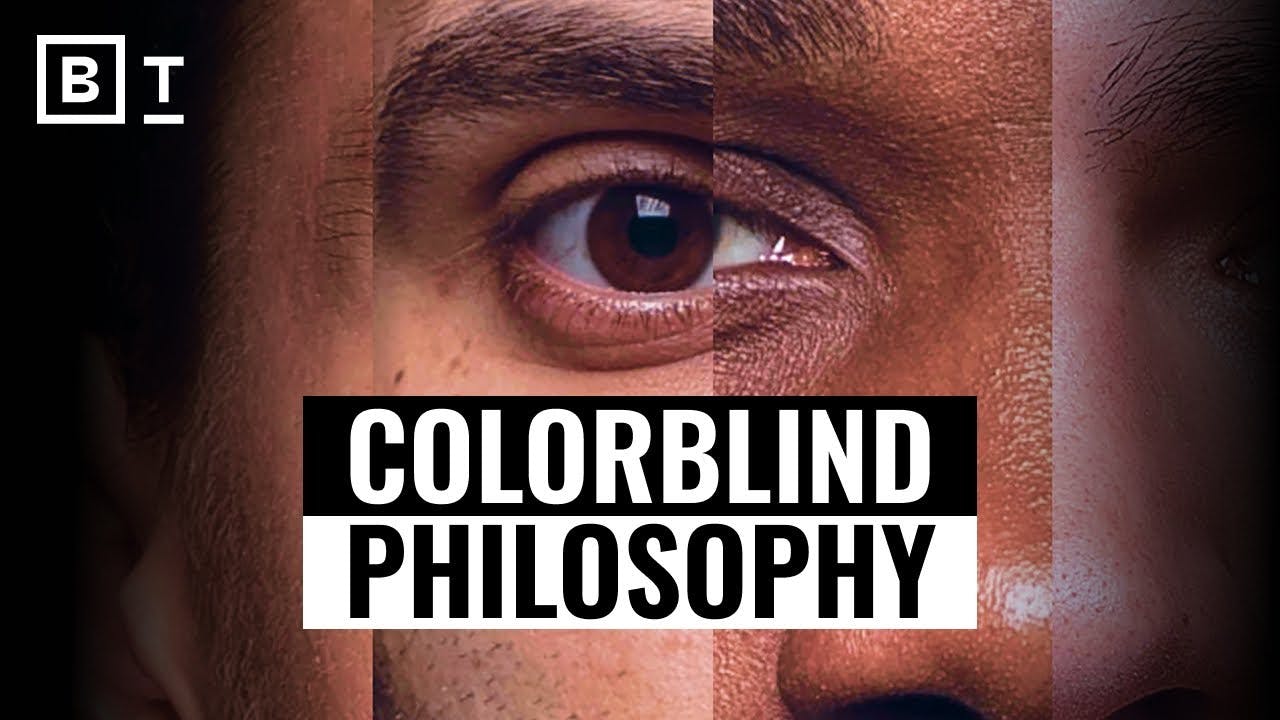
Big ThinkIs race politics poisoning young minds? Coleman Hughes weighs in**Key Insights from Coleman Hughes on Race, Colorblindness, and Public Policy:**
🌍 **Philosophy of Colorblindness**
Colorblindness, often misunderstood, isn’t about ignoring race or pretending it doesn’t exist. According to Coleman Hughes, it’s a philosophy of treating people without regard to race, advocating for equality in both personal lives and public policy. He argues that it’s a truce where race isn't directly selected for, but instead, more meaningful proxies like class and socioeconomics are prioritized.
👁 **The Danger of Racial Essentialism**
Hughes warns against viewing race as a deep, intrinsic part of one’s...
2025-08-2243 min
Big ThinkWhy Florida and Texas are booming (and NY and California are not) | Economist Joseph PolitanoThe winners of the remote work boom? Utah, Arizona, and Maine. Here’s what the US’ post-pandemic migration looks like.
In the wake of COVID, rising populations are shifting out of states like New York and California and moving to previously less-popular landscapes. The biggest beneficiaries of the post-pandemic economy have been states in the American South, including Texas and Florida, which has seen the fastest GDP growth of any state since the start of COVID, at more than a 20% increase.
What is driving these shifts in economic geography? Economist Joseph Politano points out that the...
2025-08-2109 min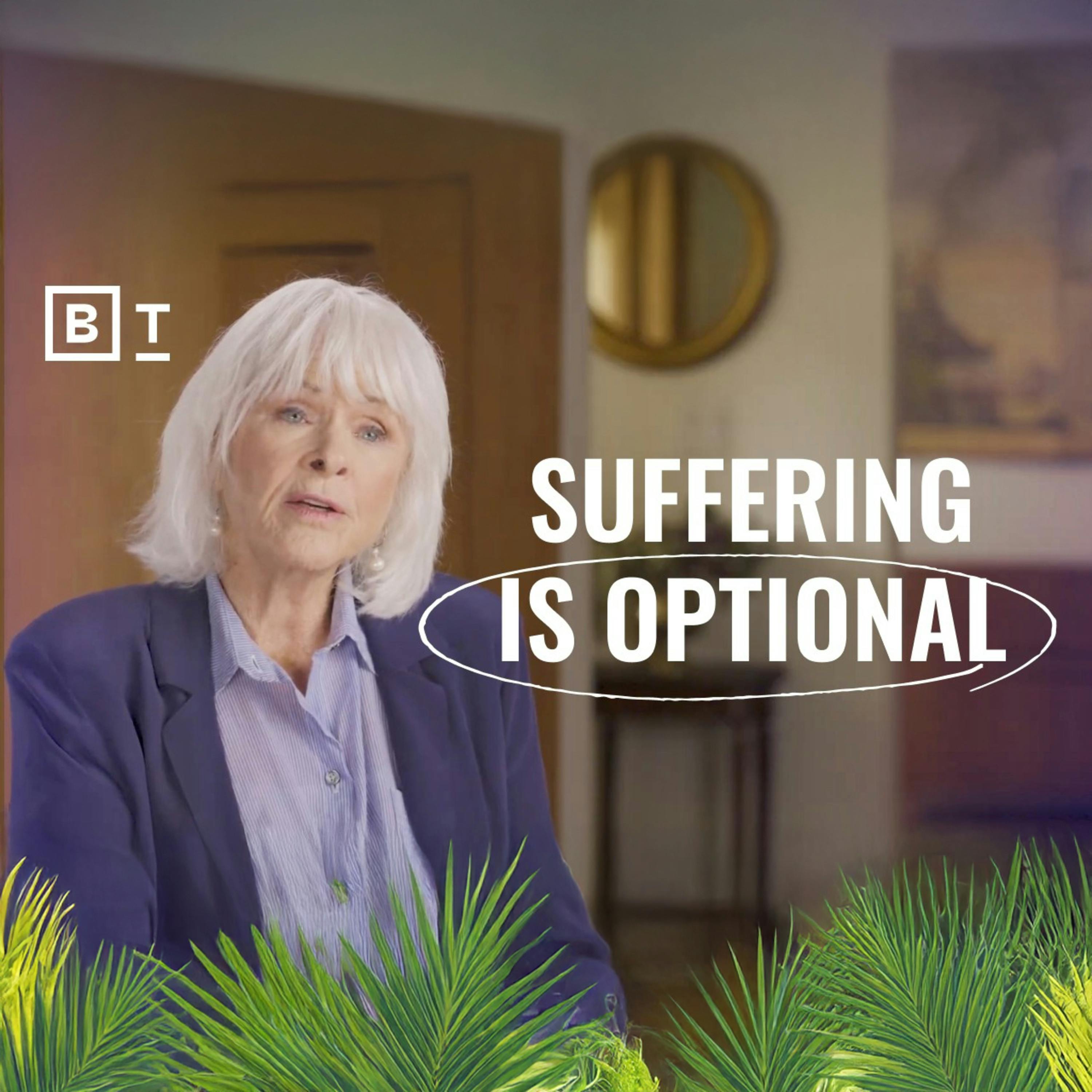
Big ThinkThe four questions that can help your mind heal | Byron KatieWith just four simple questions, she begins to dismantle the beliefs that once held her hostage. What happens when you stop believing your own thoughts? What if freedom is closer than you think?
“I saw that when I believed my thoughts, I suffered, and when I didn’t believe them, I didn’t suffer.”
Author and public speaker Byron Katie shares how she transformed her life after discovering ‘The Work’, a method for identifying the thoughts that cause pain and suffering. By asking herself four simple yet profound questions, she found a way to recover from her agor...
2025-08-2109 min
Big ThinkSam Harris: Is AI aligned with our human interests?Sam Harris' argument for diffusing the AI arms race.
0:00 About our sponsor
0:16 The solution to “God-like AI”
1:20 The risk of self-improving AI
4:30 Two levels of risk
9:08 The AI arms race
About Sam Harris:
Sam Harris is the author of the New York Times bestsellers, The End of Faith and Letter to a Christian Nation. The End of Faith won the 2005 PEN Award for Nonfiction.
Mr. Harris' writing has been published in over ten languages. He and his work have been discussed in Newsweek, TIME...
2025-08-2117 min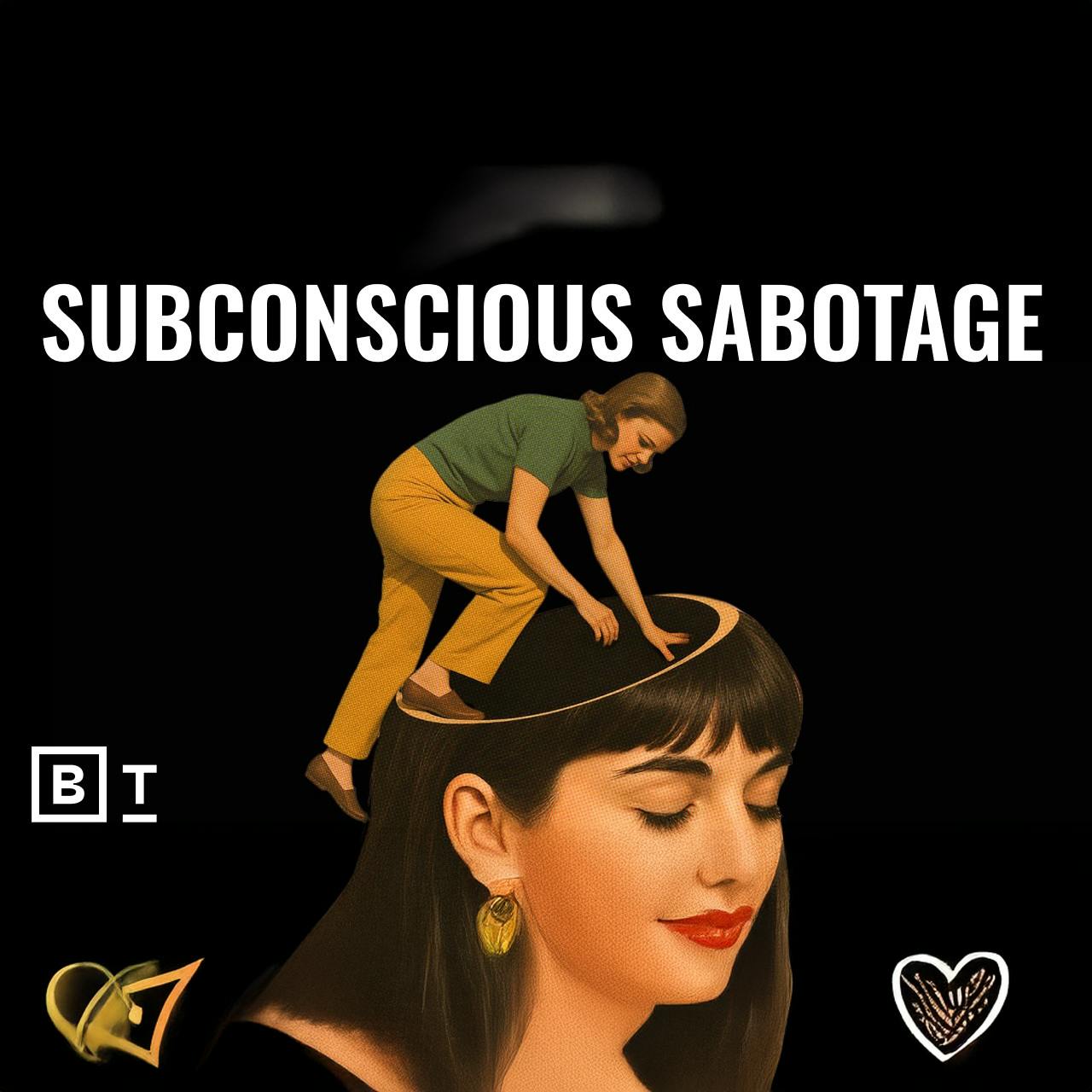
Big ThinkFix your destructive mindset in 15 mins | Anne-Laure Le Cunff"Being aware of your mindsets is the difference between living a conscious life, where you're making choices in accord with what you actually want and going where you actually wanna go, versus being on autopilot and having those mindsets subconsciously drive all of your decisions."
Chapters:
0:00 Our mindsets’ influences
0:50 Linear vs. Experimental
2:50 3 subconscious mindsets
4:58 The experimental mindset
6:30 Designing experiments
8:35 Habit vs. Experiment
🔥 Are Your Mindsets Secretly Controlling Your Life?
We all have default ways of seeing the world—our *mindsets*. And these m...
2025-08-2117 min
Big ThinkThe third, lost type of memory that might be the most important oneAre our current school systems stifling learning that matters? Mary Helen Immordino-Yang, a professor of education, psychology, and neuroscience at the University of Southern California, says yes.
According to Immordino-Yang, our education system focuses too much on memorizing facts and procedures, neglecting autobiographical memory—the personal story we tell ourselves about who we are and what we stand for. This type of memory is crucial for growth, development, and well-being.
Immordino-Yang tested this theory with a 5-year study that analyzed how young people’s brains are affected by deep thinking and reflection. She found that when...
2025-08-2109 min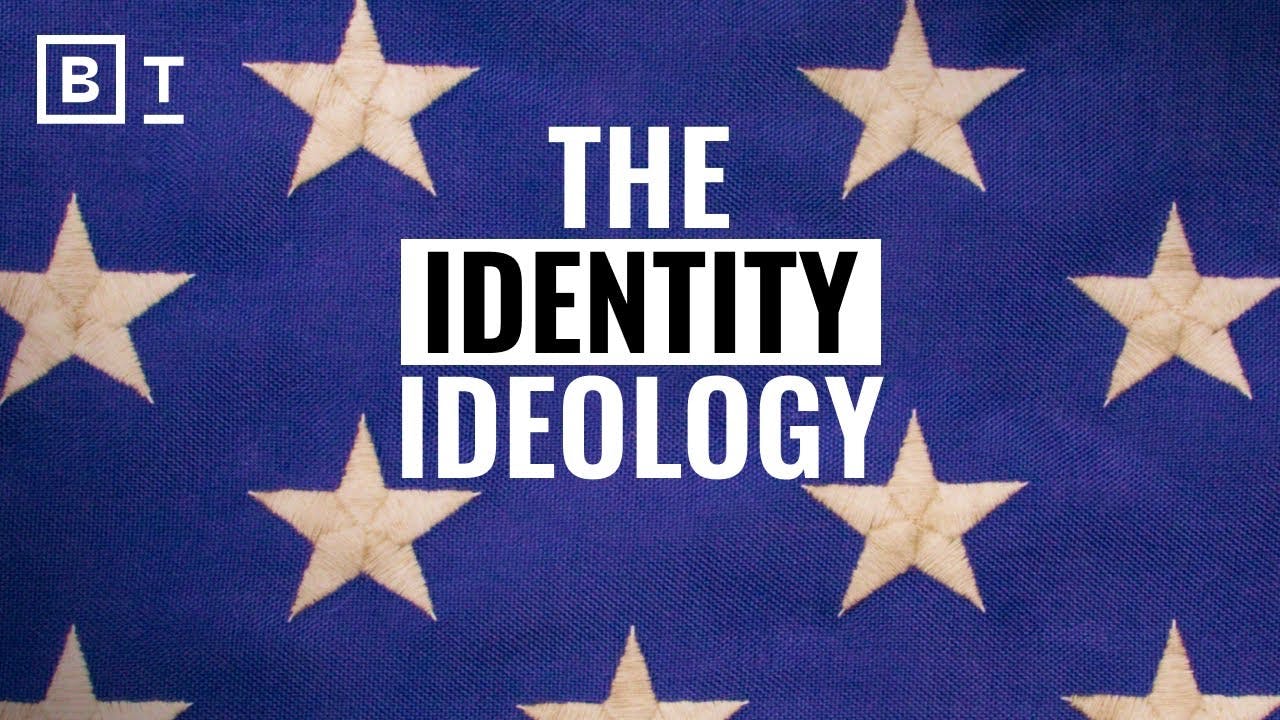
Big ThinkJohns Hopkins professor: Identity politics—and why I think it spells trouble | Yascha MounkIs “identity synthesis” the remedy for racial injustice? This political scientist says no.
------------------------- Learn more about your ad choices. Visit megaphone.fm/adchoices
2025-08-2015 min
Big ThinkWe can split the atom but not distinguish truth. Our information is failing us | Yuval Noah Harari“Why is it that the quality of our information did not improve over thousands of years? Why is it that very sophisticated societies have been as susceptible as stone age tribes to mass delusion and the rise of destructive ideologies?”
We belong to a world that is more interconnected, and yet more volatile than ever before. The masses of information that make this connectivity possible present the largest and most pressing threat to humanity, says historian and the best-selling author of 'Sapiens' @YuvalNoahHarari. Sitting down with journalist Andrew Ross Sorkin @92NY, Harari discusses the way our information systems are...
2025-08-201h 22
Big ThinkWhy creating is crucial to human existence | Godfrey Reggio, Steve Albini, and Fred Armisen🔊 *“Meaning is what you do. It’s not what you say.”* — Godfrey Reggio
This meditative episode of *Dispatches from the Well* dives into the lives of three unconventional creators — **Godfrey Reggio**, **Steve Albini**, and **Fred Armisen** — exploring how they find meaning through discipline, presence, and the refusal to follow convention.
🧘♂️ **Godfrey Reggio**, once a monk and social worker, became a groundbreaking filmmaker known for *Koyaanisqatsi*, a wordless reflection on humanity and technology. His chaotic studio belies his deep focus and 8+ years of obsessive labor on a single project. He believes:
> *“You become what you do.”*
His fil...
2025-08-2038 min
Big ThinkInside Jay Pharoah’s antifragile mindset**🎭 Jay Pharoah's Journey: From Impressions to Inner Power**
🔓 **"Being yourself, unapologetically, is freedom."**
Jay Pharoah reflects on embracing authenticity in comedy. While impressions come naturally—“like breathing”—he once viewed them as limiting. But now? He calls them a *superpower* that draws people in, giving him the chance to reveal deeper talents.
💔 **Childhood pain, adult forgiveness**
Jay opens up about the tough dynamic with his father growing up—strict discipline, even abuse. But at 17, he made peace. Forgiveness, he says, freed him from anger and fueled his drive to succeed.
🔥 **True celebrat...
2025-08-1908 min
Big ThinkYour brain is biased by default. Here’s how to reset it. | David EaglemanExpanding your worldview starts with understanding your brain. Stanford neuroscientist David Eagleman explains.
David Eagleman, a neuroscientist at Stanford and host of the Inner Cosmos podcast, explores how our brains shape the reality we experience and why we often accept our perceptions as the only truth. From a young age, we develop our understanding of the world based on limited experiences and biases, which can lead us to form narrow views about what's true.
**🧠 “Your Reality Is Just One Version” — Why Expanding Your Mind Could Save Humanity**
What if everything you believe to be *true...
2025-08-1909 min
Big ThinkImprove your critical thinking skills in just 6 minutes | Alex Edmans for Big Think+“People will claim that something is rigorous because it's by an authority figure, or it's written in a book. But anyone can write a book.”
---------------------------
We often think the solution to misinformation is fact checking. But just checking facts is not enough. Even if a fact is 100% accurate, it could still be misleading – it could be a large-scale correlation when there’s no causation.
The solution to misinformation is not obtaining a PhD in statistics, London Business School professor Alex Edmans and author of “May Contain Lies” argues. We often already possess the discerni...
2025-08-1808 min
Big ThinkThe secret behind Diana Nyad’s incredible 53-hour swimThe one phrase that changed Diana Nyad’s life, and set her on course to become the first person ever to conquer the 110 mile, 53 hour swim from Florida to Cuba.
At 64, Diana Nyad swam 110 miles from Cuba to Florida, facing jellyfish, exhaustion, and tough ocean currents for over 53 hours. But this feat was more than just physical - it was the result of a lifetime of mental endurance. As a young swimmer, she faced sexual abuse from her coach, which derailed her Olympic dreams and left deep emotional scars. Instead of letting those experiences hold her back, sh...
2025-08-1709 min
Big ThinkI make videos about life lessons, these are the ones I’ve learned firsthand | Dhar Mann"Change your name—your failures will follow you."
That was the worst advice Dhar Mann got—from someone he admired. Instead, he built his entire brand on that very name. Now? 60+ billion views.
Growing up, he never fit in—too Indian for Americans, too American for Indians. Even ate lunch in the bathroom to avoid judgment. But later, he realized: he didn’t need to fit into any box at all.
At 30, rock bottom hit: broke, depressed, facing public failure. That’s when he stopped blaming the world—and took full ownership of his life. "If I...
2025-08-1610 min
Big ThinkBen Horowitz: Quit being a coward and do the hard thing | Big Think+"You need to run towards the pain and darkness and not away from it. I think the best leaders always run towards the darkness. They always run towards a problem."
Much of the management advice we find in books emphasizes using leadership tactics that may seem reasonably obvious. This advice is often easy to follow — but that’s not where leaders run into issues with their strategy, argues Ben Horowitz, founding partner at the venture capital firm Andreessen Horowitz and author of the best-selling book, "The Hard Thing About Hard Things.”Horowitz says that leaders make blunders when t...
2025-08-1508 min
Big ThinkJewel: Clear perception is the way to psychological strength | Perception Box@jewel says denying the truth cost her years of her life. This is how she shifted her perception to see truth more clearly and regain her strength.
“My number one job was to be a happy, whole human — not a human full of holes.” Jewel Kilcher, singer-songwriter, and visual artist, opens up about her childhood, the start of her career, and what makes Jewel, Jewel.
After being discovered during a coffee shop gig in the 1990’s, folk singer Jewel began the life-long endeavor of being a performer. Jewel went on to gain worldwide recognition for her talent and creativity...
2025-08-1511 min
Big ThinkWharton professor: 4 scenarios for AI’s future | Ethan Mollick for Big Think+Wharton professor Ethan Mollick explains why “co-intelligence” may be the future of AI.
Ethan Mollick, professor at the Wharton School of the University of Pennsylvania and author of "Co-Intelligence: Living and Working with AI," explores the impact of AI on our work, creative endeavors, and overall lives.
AI is reshaping our understanding of humanity and intelligence, evolving from simple prediction tools to sophisticated large language models, but how do we keep it from dooming us all? Should we be more afraid of it, or are we actually in control? Mollick proposes four most likely predictions of our future with...
2025-08-1410 min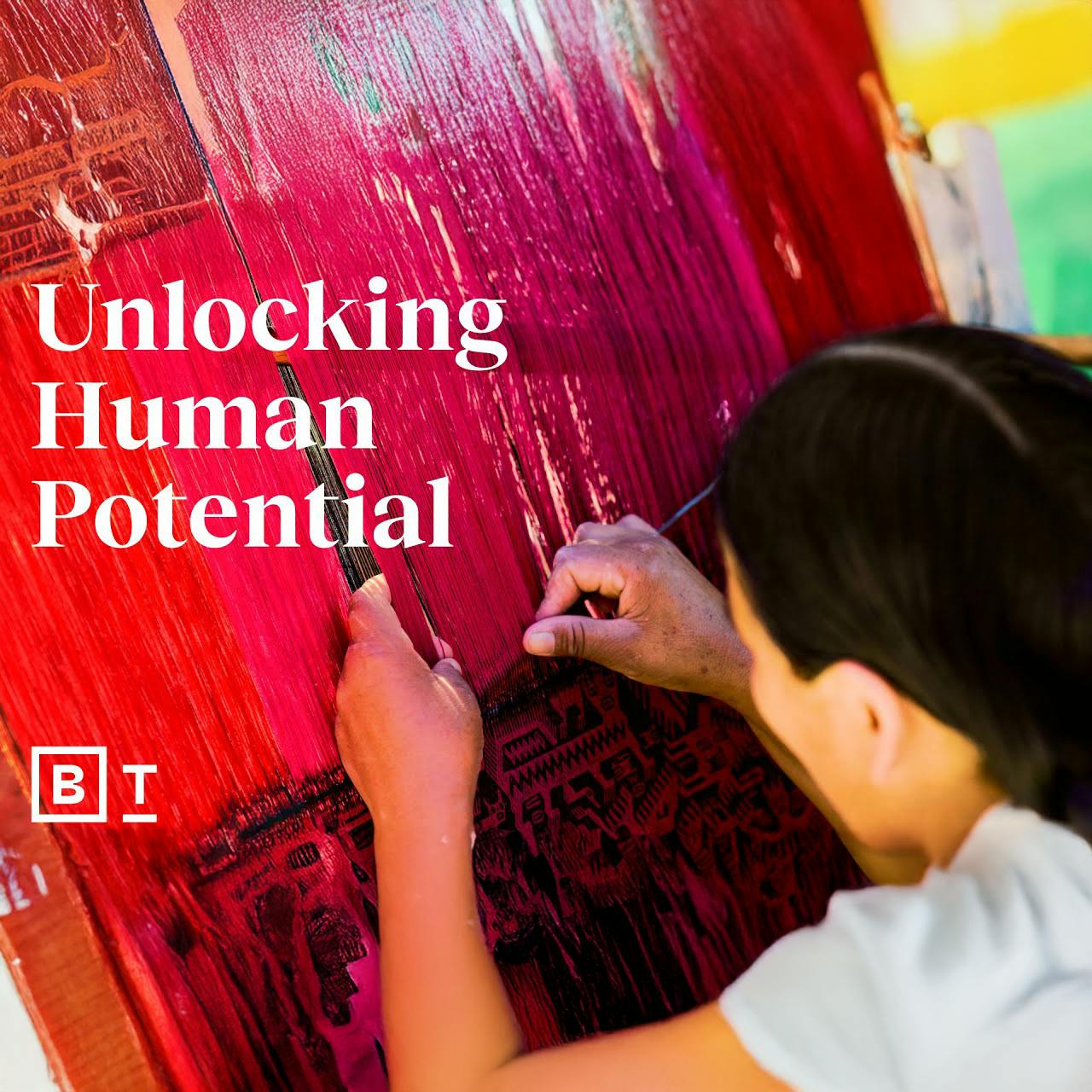
Big ThinkWhat we get wrong about learning — and how to reframe itCan the power of community transform our educational systems for the better? This neuroscientist says absolutely.
Mary Helen Immordino-Yang is a neuroscientist and USC professor, and she has spent her career studying education and the ways we can enhance it. Her findings claim that diversity has a huge impact on brain growth and even life experience. She explains that similarly to how fabric is composed of thousands of intricately woven threads, our schools need the active coordination of many people and skills, making them stronger together.
Immordino-Yang stresses the importance of this strong social fabric...
2025-08-1406 min
Big ThinkThe beauty of our improbable existence with a NASA expert, physicist & futurist**🚀 From Mars Rocks to 10,000-Year Clocks: A Journey Through Time, Space & Human Curiosity**
In this episode of *Dispatches from the Well*, we're taken on an awe-inspiring ride through the cosmos and deep into Earth's own history—guided by some of the most curious minds on the planet. 🧠🌍
🔴 **Nina Lanza**, a planetary scientist, doesn't work *on* Mars—but she works *for* it. From the volcanic terrains of New Mexico, she studies rocks eerily similar to those found on the Red Planet. With NASA’s Rovers Curiosity and Perseverance, she's uncovering secrets about Martian geology, including tantalizing hints that microbi...
2025-08-1243 min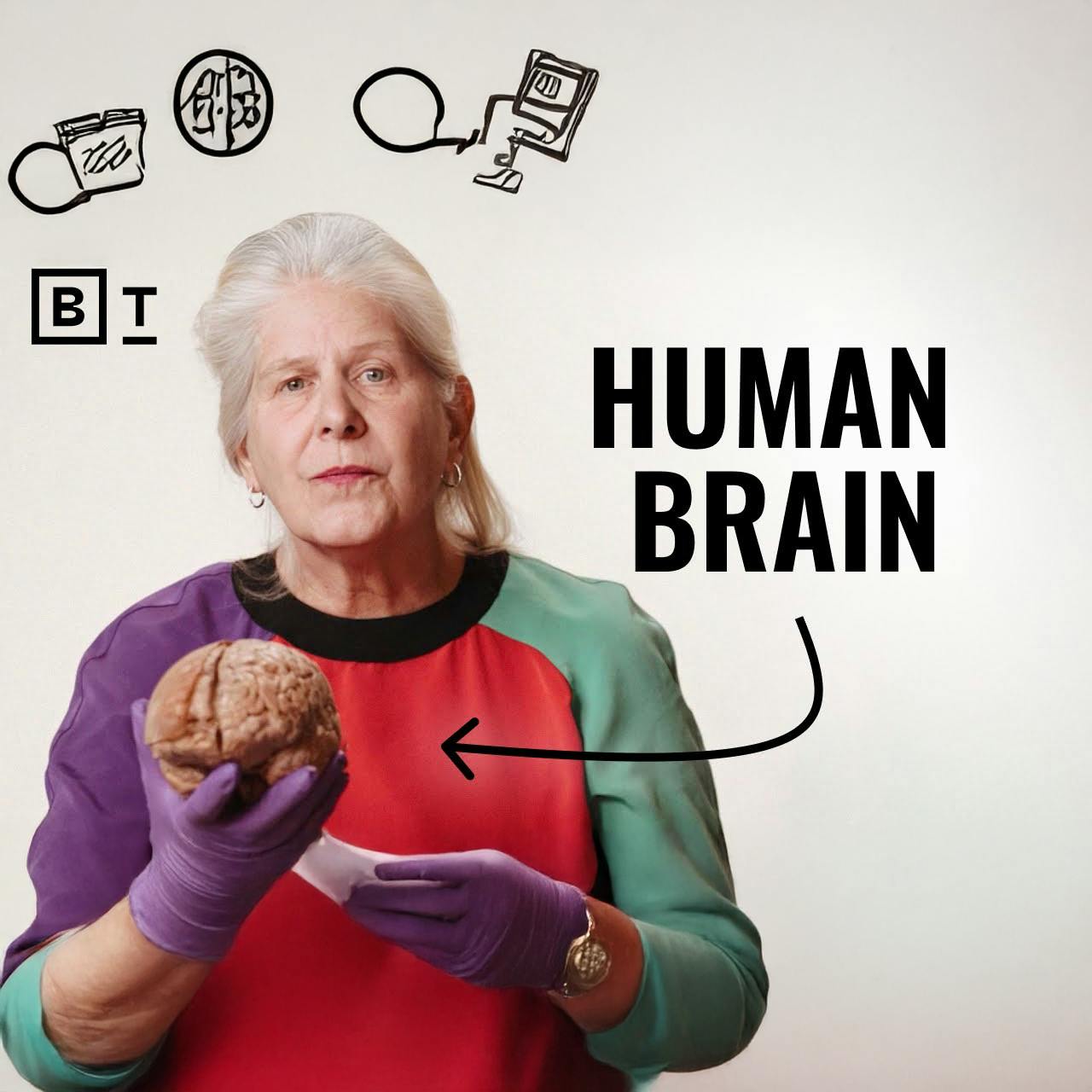
Big ThinkExpand your perception. Change your life. | Dr. Jill Bolte TaylorNeuroanatomist Dr. Jill Bolte Taylor explains the 4 key ”characters” of the brain, and how understanding each can expand your perception of yourself, and the world, forever.
At age 37, neuroanatomist Dr. Jill Bolte Taylor suffered a stroke that would take her eight years to fully recover from. This is how it changed her understanding of the brain.
In this interview, Dr. Jill draws a map of the human brain, explaining how it is comprised of four distinct modules, each serving a unique role in function and personality. This combination of cognitive and emotional components gives rise to the multidimensional characters with...
2025-08-1211 min
Big ThinkHow an AI chip war could destroy the global economy | Chris Miller for The Freethink InterviewWelcome to The Freethink Interview, a interview series from our sister channel @freethink where we talk to the new generation of builders, leaders and thinkers shaping technological progress. Join us for thought-provoking conversations with some of the world’s most interesting and ambitious technologists.
What if the world's most critical technology isn't software, but the tiny pieces of silicon that power it? In an age where chips are everywhere, from smartphones to coffee makers, their manufacturing complexity might surprise you. It's harder to make a modern semiconductor than a nuclear weapon.Inside Taiwan's cutting-edge fabrication plants, machines wo...
2025-08-1220 min
Big Think10 biggest world threats of 2024, ranked | Ian Bremmer00:00 Introduction
00:28 Why a Top Risks report?
01:31 2024 is a geopolitical recession
03:45 #10 Risky business
05:07 #9 El Niño is back
07:03 #8 No room for error
09:05 #7 The fight for critical minerals
11:23 #6 No China recovery
12:52 #5 The axis of rouges
15:50 #4 Ungoverned AI
18:53 #3 Partitioned Ukraine
21:34 #2 Middle East on the brink
24:53 #1 The US vs. Itself
28:55 The case for optimism in 2024
Folllow this Podcast for daily Episodes
------------------------- Learn more about your ad choices. Visit megaphone.fm/adchoices
2025-08-1140 min
Big ThinkYuval Noah Harari: ChatGPT is the “amoeba of AI evolution”**Are we losing our humanity to machines?** In a world where AI never sleeps, humans are being forced to keep up with an unforgiving digital cycle. This episode explores the growing tension between organic life—bound by rest, seasons, and natural rhythms—and the relentless, inorganic system of algorithms that now shape our reality. Even the tech leaders building AI admit they’re afraid of what they’re creating. But if we’re at a turning point in the history of the universe, are we in control—or just bystanders in the rise of something bigger? **The next phase of evolution...
2025-08-1106 min
Big ThinkHow we can revive Planet Earth in less than 20 years | Sean B. Carroll“If given a chance, nature can rebound, and nature can rebound dramatically.” Biologist Sean B. Carroll discusses the resilience of nature and how humans can help it thrive.
Humans litter, start wars, hunt, and poach, but history has also shown we are capable of undoing our damage. Carroll highlights Gorongosa National Park in Mozambique, where a brutal civil war decimated 98% of the large animal population. Yet, through dedicated conservation efforts, the park has seen a remarkable recovery – and this is not the only example.
This video explores the power of awareness and action—no matter how small. While humans have cau...
2025-08-1011 min
Big Think3 ways to defend your mind against social media distortions**The Impact of Social Media & Attention** 📱🧠
- **Seductive Speed**: Technology allows opinions to spread quickly, captivating our attention. Social media places us in a world where we can compete for engagement even with people on the other side of the world, amplifying distractions. ⏳🔄
- **Attention & Memory**: Constant distractions hinder attention, preventing us from forming new memories. Every online interaction is like a “funhouse of mirrors,” distorting our sense of reality. 🎢
- **Identity Theft**: Data breaches expose our information, leading to risks like fraud, stolen identities, or being locked out of accounts. 🔐💳
- **Mimetic Desire**: So...
2025-08-1019 min
Big ThinkAnne-Laure Le Cunff: The 3 cognitive scripts that rule over your life | Full Interview"We try to stick to routines and we try to go through very long lists of tasks, often ignoring our mental health in the process. There is a lot more to think about on a daily basis, but our brains haven't evolved."
This episode explores how cognitive overload and the pressure to maximize productivity lead to anxiety, burnout, and rigid goal-setting. Neuroscientist Anne-Laure Le Cunff introduces the concept of the "maximized brain," where ambition overrides curiosity, often resulting in overwhelm. She contrasts this with the "experimental mindset," which embraces small, curiosity-driven experiments instead of rigid goals. Drawing...
2025-08-0956 min
Big Think3 biases fueling belief in conspiracy theories | Brian Klaas**Why do conspiracy theories spread like wildfire?** Our brains are wired to seek patterns, reject randomness, and crave compelling narratives. This makes us especially vulnerable to grand conspiracies—stories that explain the world in neat, dramatic ways. From Princess Diana’s death to global political upheavals, people reject mundane explanations in favor of thrilling hidden plots. And with the internet amplifying misinformation like never before, conspiracy theories now shape politics, deepen polarization, and threaten democracy itself. **Can we clean up the information pipeline before truth becomes just another opinion?**
“The problem with conspiracy theories is they're not just t...
2025-08-0909 min
Big ThinkThe 3 most difficult types of coworkers and how to deal with them | Amy Gallo for Big Think+Harvard Business Review editor Amy Gallo shares the three worst types of coworkers and how to deal with them.
Positive work relationships, as Amy emphasizes, are not only nice to have but also crucial for performance, creativity and well-being. By prioritizing empathy and upfront communication, Gallo’s principles for managing tough conversations and engaging with difficult colleagues can help everyone create more generative, amiable professional communities.
Looking to bring Amy's insights to leaders across your company? Great. This video is part of a 9-part expert class on mastering relationships at work — and it’s available to organizations that subscribe to Big...
2025-08-0908 min
Big ThinkYou need data literacy now more than ever – here’s how to master it | Talithia WilliamsIn a world where our decisions are increasingly influenced by data, understanding the information we encounter has never been more essential. Dr. Talithia Williams explains the case for data literacy.
Dr. Talithia Williams, a math professor and science communicator, shares her take on why understanding data is now more important than ever. Using examples like noticing targeted ads after a conversation, Williams shows how data shapes our everyday experiences. But she also warns of the dangers, like biases in data-driven models that can lead to unfair outcomes. While AI and machine learning offer powerful insights, it’s up...
2025-08-0808 min
Big ThinkUnmask the comedian. Meet the real Kel Mitchell.### 🎭 **Kel Mitchell: From Pain to Purpose**
**Who is Kel Mitchell?**
Actor, comedian, author, pastor — and a deeply reflective human being.
### 🌟 Key Life Lessons from Kel’s Story:
#### 🧠 1. **Childhood Trauma Sticks Around**
- A moment of childhood hate left a lasting imprint.
- Unresolved pain can resurface in adulthood and distort how we see others.
#### 🤝 2. **The Power of Honest Conversations**
- Kel used to bottle up emotions and avoid conflict.
- Growth began when he started **sharing his truth** and **understanding others deeply**.
2025-08-0809 min
Big ThinkLove, sex, and happiness, explained by philosophy | Jonny Thomson: Full Interview"Plato would argue that sex in and of itself is not what true love is. Sex can reach a point where you are in union with that person, where you see behind their appearances and you see behind the flesh and you experience something which is more transcendental."
Chapters:
00:00 Why has the study of happiness become your focus?
02:30 Why is happiness elusive?
05:09 What are the 3 pillars of happiness?
13:15 How can we apply the 3 pillars of happiness to our lives?
16:08 What is true love?
19:08 Is there...
2025-08-0639 min
Big Think3 predictions for the future of music | Michael Spitzer**🎵 The Future of Music: Diverse, Technological, and Beyond Sound**
Will music survive the digital age? Absolutely — and not just survive, but evolve in ways we can barely imagine.
Despite the internet’s overwhelming access and ease, music won't become a dull, uniform noise. Why? Because *every artist craves uniqueness*. There’s an innate drive to rebel against trends and innovate. Plus, music is deeply tied to **personal identity**, and with thousands of genres already in existence, this creative diversity isn’t going anywhere.
Looking ahead, several bold predictions emerge:
- **Music will become...
2025-08-0606 min
Big ThinkWho decides what is socially “normal”? | Christine Emba**🧭 Who Decides What’s “Normal” Anymore? Rethinking Social Norms in a Shifting World**
Why do we follow social norms — and how do we know when they’ve expired?
Social norms act as **shortcuts**, like a guidebook for fitting into your time and place. They offer structure, a sense of belonging, and even emotional rewards like pride or guilt. They help us function — not just because we believe in them, but because *everyone else* does too.
But today, the old rules feel... Wobbly.
From door-opening etiquette to gender roles, many norms seem out of place in...
2025-08-0607 min
Big ThinkHow I found belonging in the most unfamiliar territory | Atsuko OkatsukaAsian-American comedian Atsuko Okatsuka shares her experience as an immigrant, navigating personal insecurities, and ultimately finding belonging in comedy.
**In this episode,** comedian **Atsuko Okatsuka** reflects on identity, perfectionism, and feeling *not good enough*. She shares her experience growing up as an immigrant with a schizophrenic mother and how her grandmother secretly brought her to the U.S., separating her from her father.
Atsuko explores people-pleasing, fear of disappointment, and how pain has shaped her. Through comedy and self-reflection, she confronts the past and finds connection.
The weight of cultural dislocation, family turmoil...
2025-08-0309 min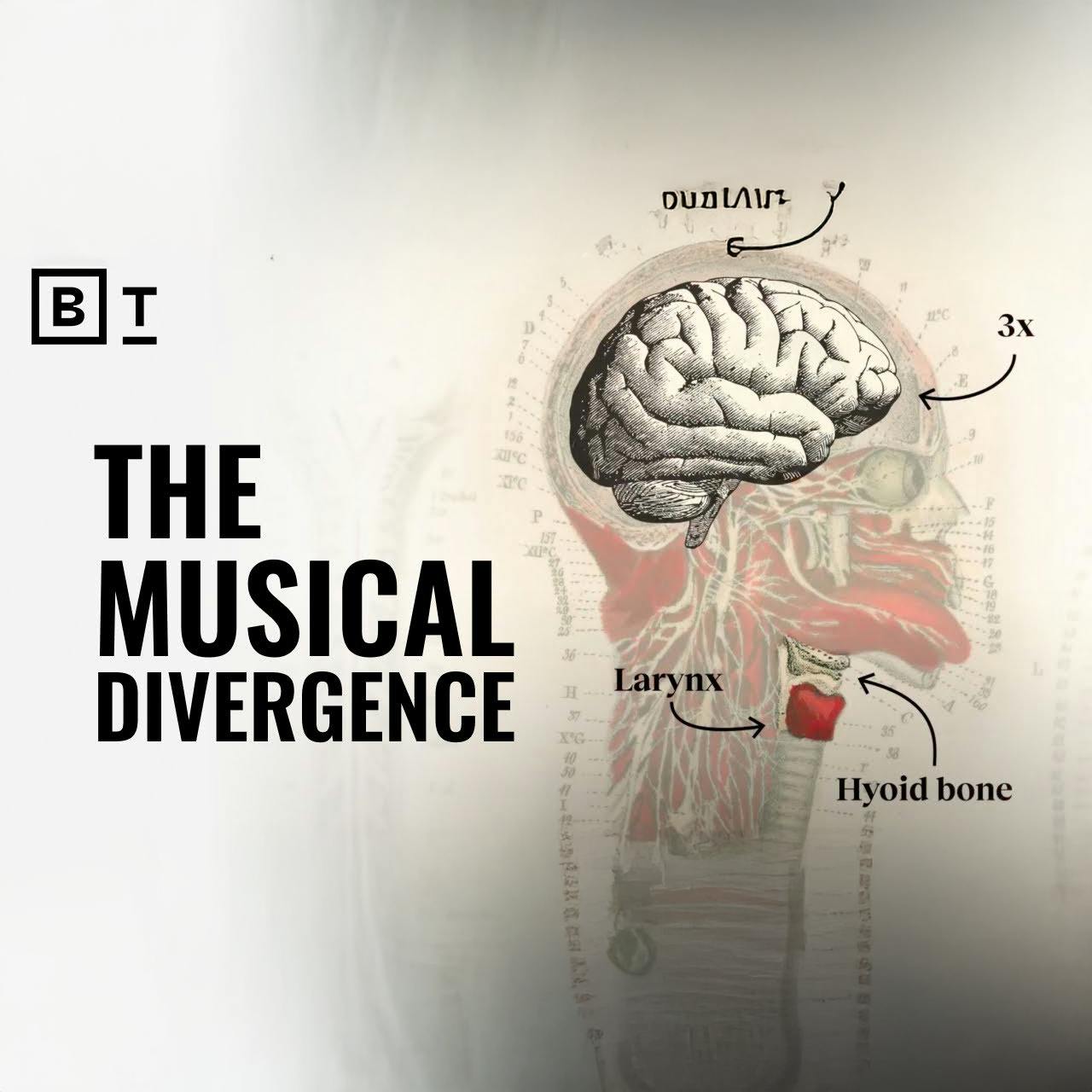
Big ThinkHow humans evolved music | Michael Spitzer**🎵 The Cosmic Joke of Human Music: Are We the Least Musical Animals?**
Despite our rich symphonies and emotional ballads, humans may be *the least* naturally musical species. Unlike birds that *creatively learn new songs* and insects that *pulse in perfect rhythm*, our ape ancestors lacked musicality. So how did we end up here—singing, dancing, composing?
🎼 Music wasn’t inherited. It was reinvented.
Humans, through evolution—bipedalism, brain growth, vocal range—built music from scratch. Rhythm came from walking upright. Emotion came from mirror neurons. Our oversized brains made room for play, nuance, and infinite s...
2025-08-0210 min
Big ThinkHarvard psychiatrist on happiness: Positive vs. toxic relationships | Robert Waldinger**💡 The #1 Investment for a Happy Life Isn't What You Think**
If you could make just one investment to stay happy and healthy for life, what would it be? Most people say money or success—but **the longest-running study on human development proves it's something else entirely**.
According to Dr. Robert Waldinger, director of the **Harvard Study of Adult Development**, the secret to long-term well-being isn’t wealth or fame—**it’s strong, warm relationships**. People with close, reliable bonds not only feel happier, but they actually live longer and stay healthier.
The study, which spans...
2025-08-0219 min
Big ThinkThe universal hack: Why the friction principle applies everywhere | Bob Sutton for Big Think+**Slow Down to Speed Up: The Power of Constructive Friction**
We often rush to solve problems—whether planning a trip, fixing a Lego model, or leading a company. But sometimes, slowing down is the smarter move. Think of a race car: winners don’t go full throttle the entire time; they brake at corners, stop for pit stops, and pull over when the car is on fire.
In organizations, obstacles can be frustrating, but they can also be useful. Good friction makes the right things easier and the wrong things harder. For example, Theranos' Elizabeth Holm...
2025-08-0209 min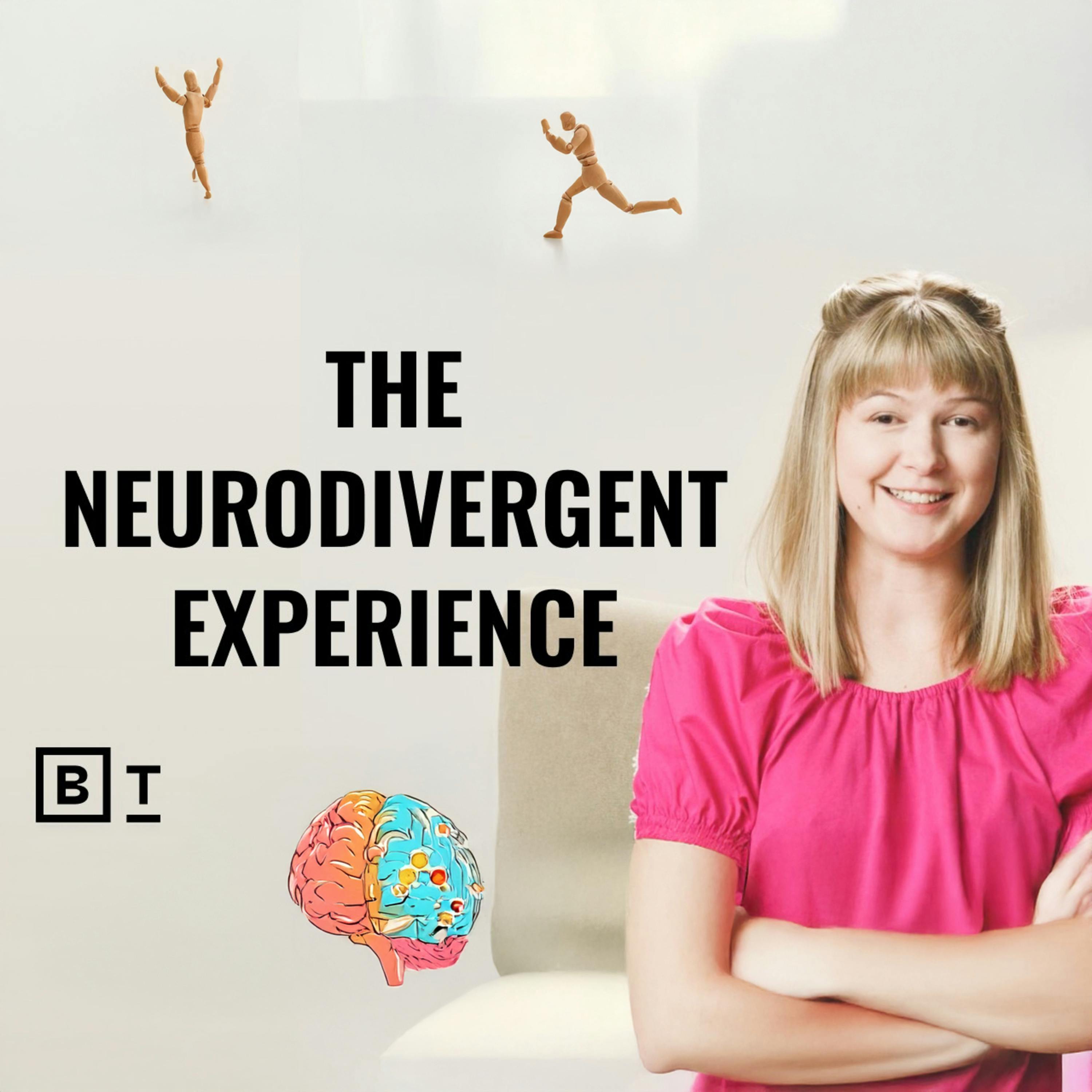
Big ThinkHow my diagnosis changed the way I perceive myself | Kaelynn Partlow**Living Between Understanding and Loneliness**
Since gaining consciousness, Kaelynn Partlow has felt disconnected—spending more time analyzing human interactions than experiencing them. As an author, autism advocate, and content creator, she channels her thoughts into her work, finding solace in the movement of fidget toys and the rhythm of words.
Growing up, Kaelynn struggled with self-perception, feeling "stupid" after failing third grade. A string of diagnoses—autism, ADHD, dyslexia, and more—gave her new labels to hold onto, but they didn’t erase the weight of being misunderstood. Conversations often felt like puzzles where others simply s...
2025-08-0109 min
Big Think3 powerful mind states: Flow state, good anxiety, and Zen Buddhism### **🧠 Understanding Anxiety, Flow, and Connection**
*With Wendy Suzuki, Stephen Kotler & Robert Waldinger*
#### **😨 Anxiety Isn’t the Enemy – Wendy Suzuki**
- Anxiety is your brain’s **warning system**, not a flaw.
- When it becomes **chronic**, it takes over your mind and body.
- Instead of eliminating anxiety, learn to **reframe** it:
- It’s a **signal** that something matters.
- It can be transformed into **fuel for growth**.
- **Tools to manage it:**
→ Deep breathing 🧘♀️
→ Mindful self-talk (“I’m excited, not scared”) 🧠
2025-07-3131 min
Big ThinkUnlearn junk marketing, build a dynasty | Gary Vaynerchuk for Big Think+**Gary Vaynerchuk on Marketing & Business Strategy** 📈
- **Missing the mark**: Many businesses fail because they fail to connect with the right audience. 🚫
- **Marketing should care**: Companies often neglect to respect consumers' time. Good marketing connects with the audience by being enjoyable. 🎯
- **Empathy-driven advertising**: When brands show empathy, they create better ads that resonate. 🤝
- **Strategy 101**: Listen first, then act. Social media provides unparalleled insights into consumer needs. 🧠
- **Innovation in simplicity**: Great businesses solve problems people are already complaining about (like drive-throughs in fast food). 🍔
- **Storytelling e...
2025-07-3009 min
Big ThinkThe hidden cost of cheap meat exposed by Peter Singer**Peter Singer on Animal Liberation – Summary in Bullet Points**
**Cultural Context & Awakening**
- People are deeply conservative about food—it's tied to culture and tradition.
- In 1975, Singer published *Animal Liberation* after realizing the cruelty behind animal products.
- Animals used for meat, eggs, and milk often live in horrible conditions—confined, abused, and exploited for cheap production.
**Ethical Foundation**
- Singer questions the moral justification of eating animals.
- Most people are *speciesist*—valuing human life over animal life unjustifiably.
- Moral status s...
2025-07-3016 min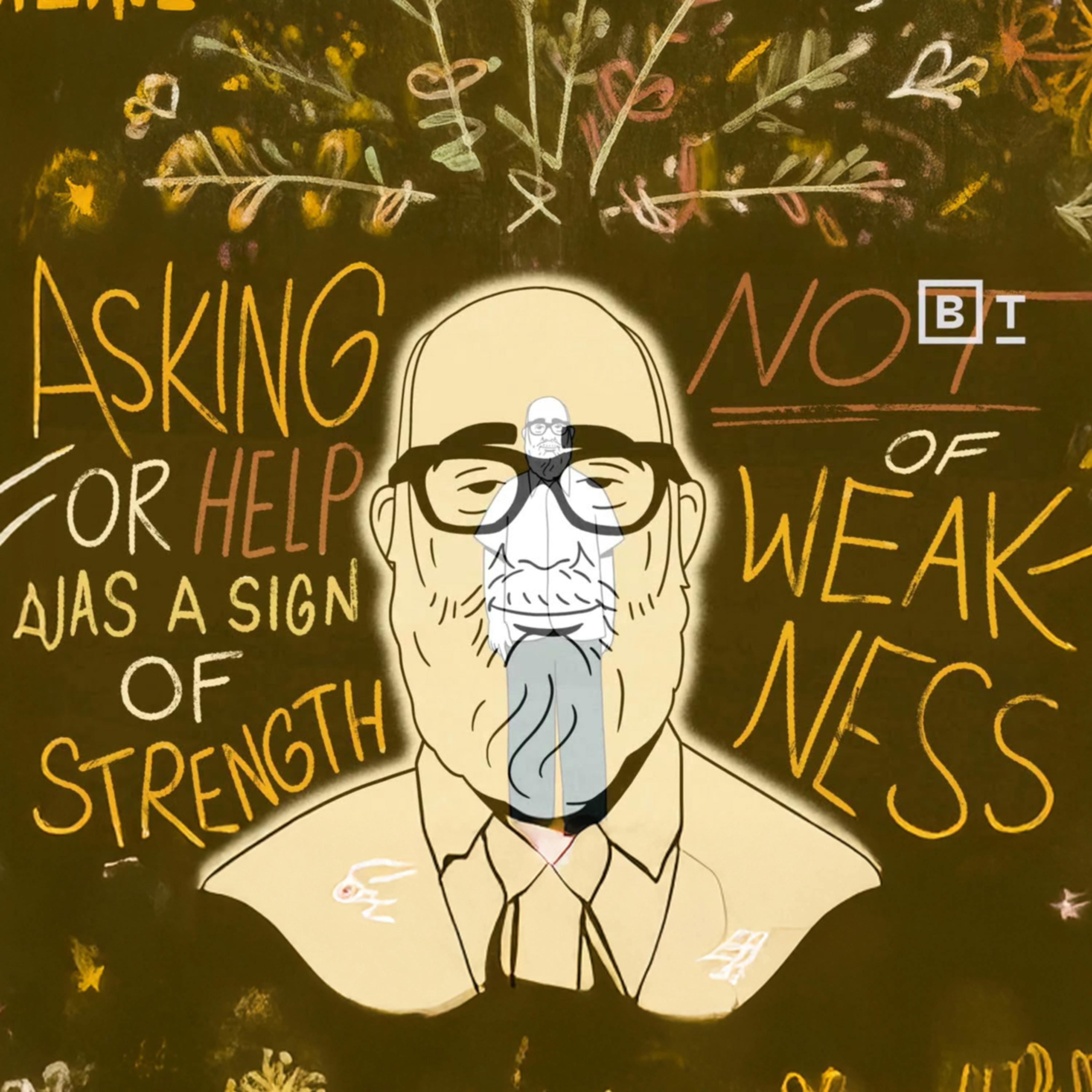
Big ThinkHow 30 seconds of clarity saved my life | Andrew ZimmernWhat happens when an irredeemable person receives love, gratitude, and respect? After decades of drug and alcohol abuse, chef and television personality Andrew Zimmern learned firsthand.
As a teenager, Andrew Zimmern experienced deep pain when his mother became permanently disabled, and his father enforced a rule to avoid discussing feelings. Without an outlet, that pain grew into resentment and substance abuse. By 14, Zimmern was drinking daily, and his addiction followed him into adulthood, ultimately costing him his career, relationships, and home.In January 1992, after hitting rock bottom, Zimmern attempted to take his own life. When he woke...
2025-07-3009 min
Big ThinkSurprise: There was a universe before the Big Bang | Ethan Siegel**Where Did the Universe Come From?**
For millennia, questions about the origins of the universe were left to poets, philosophers, and theologians. But in the 20th century, science took over the conversation—offering answers that surpassed even our wildest imaginations.
Astrophysicist Ethan Siegel breaks down the groundbreaking discoveries that led to our modern understanding of the universe’s origins. From Edwin Hubble’s discovery of distant galaxies to the Big Bang theory and the revolutionary idea of cosmic inflation, this video explores the fundamental forces that shaped everything we see today.
How did space...
2025-07-3026 min
Big ThinkBrian Cox on quantum computing and black hole physics**We might be living inside a cosmic hologram.**
At the cutting edge of physics and engineering lies a baffling truth: quantum computers and black holes might share the same secrets about how information is stored. Unlike classical computers that rely on copies for error correction, quantum memory is fragile—any touch from the environment can erase it. Engineers are now creating systems that *protect* data using redundancy, eerily similar to how nature encodes reality itself.
Decades ago, physicist Jacob Bekenstein discovered that a black hole’s information capacity is determined not by its volume, but by t...
2025-07-2908 min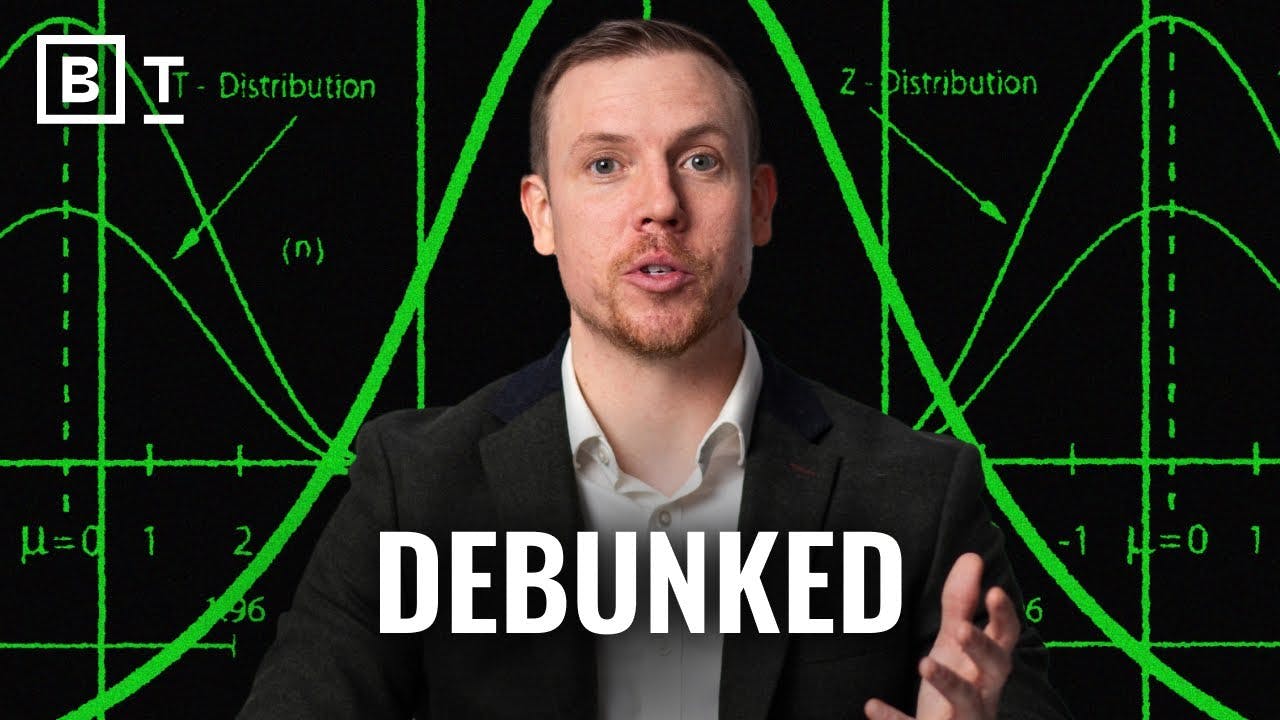
Big ThinkWhy the ultra rich get rich, explained in two charts | Brian Klaas**💸 The Genius Myth: Why Billionaires Aren’t Always Brilliant**
We’ve been sold a lie — that extreme wealth is the mark of genius. But when you peel back the layers, you find that **luck, not talent**, is often the true engine behind billionaire success.
While talent follows a normal curve — nobody is *a billion times more talented* than anyone else — **wealth doesn’t follow the same rules**. It’s wildly uneven, with a few sitting on astronomical fortunes and many scraping by. This disconnect points to something else at play: **luck striking in the middle of the talent cur...
2025-07-2808 min
Big Think10 biggest world threats of 2025, ranked | Ian Bremmer"There is so much more uncertainty and volatility in a world that is moving fast with big countries that are more at odds with each other and with fewer rules of the road that leaders, companies, and societies are adhering to."
Ian Bremmer, president of Eurasia Group and GZERO Media, has been delivering his insightful Top Risks Report for 15 years. The primary objective? To systematically outline how we should approach the world's most significant threats and opportunities in any given year.Bremmer's Top Risks report stands in stark contrast to the clickbait and anger-inducing algorithmic news dominating...
2025-07-2627 min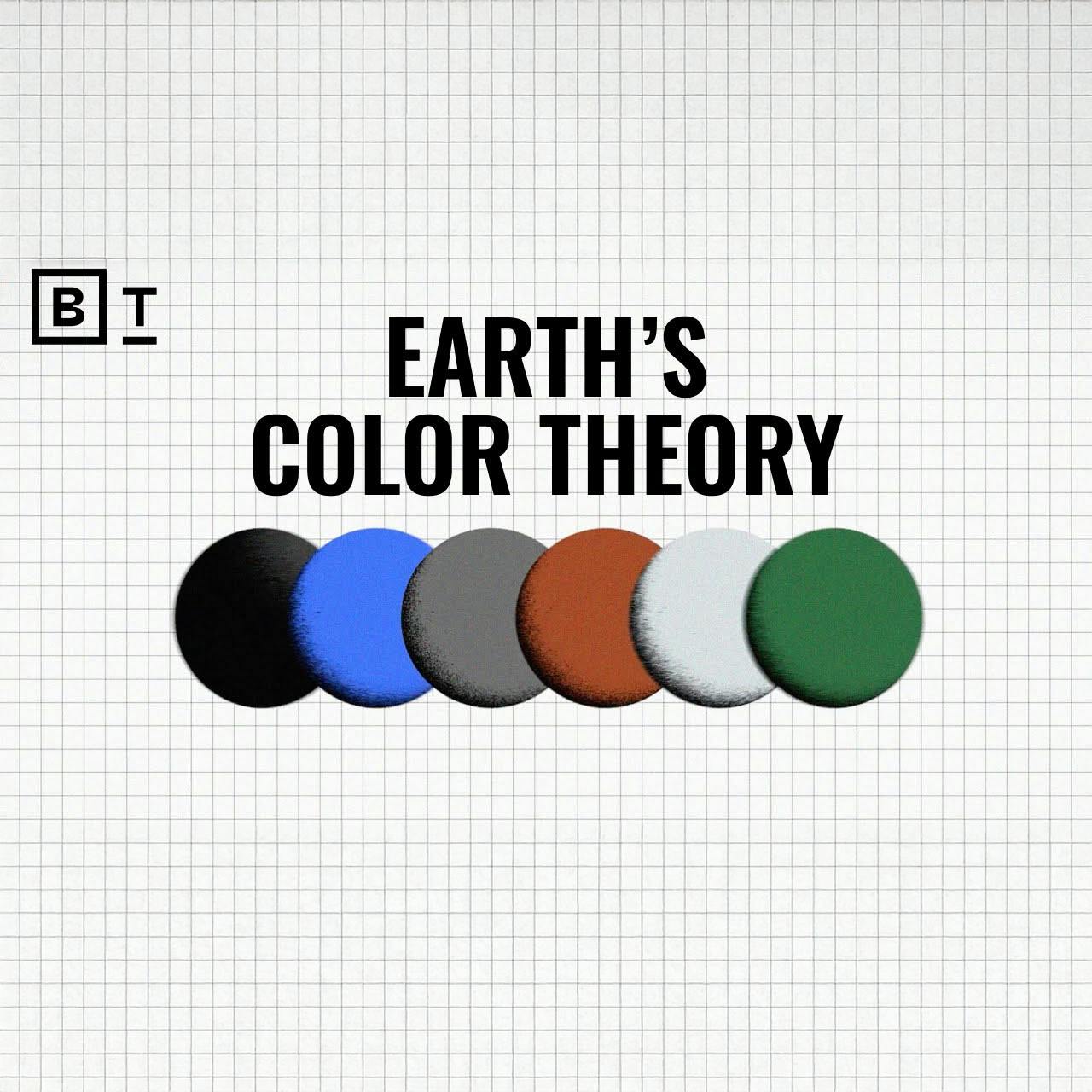
Big ThinkEarth used to look like Mars. Here’s why that changed. | Robert Hazen### 🪨 **Minerals: The Silent Architects of Life**
*— A Mineralogist’s Perspective*
#### 💎 Minerals Are Everywhere
- They power our **technology**, **transport**, **agriculture**, and even **biology**.
- Every living thing on Earth depends on minerals — **you, me, and the food we eat**.
#### 🧠 Minerals Tell Stories
- Each mineral is a **time capsule**, holding clues to Earth’s **4.5-billion-year history**.
- They're **information-rich**, revealing how our planet evolved over time.
#### 🌱 The Origin of Life
- Life couldn’t have started without minerals:
→ They acted as **catalysts...
2025-07-2503 min
Big ThinkWe have the tools to fix our food system. Why aren’t we using them? | Hannah Ritchie**We are eating our way into climate disaster.**
Even if fossil fuel emissions ended *today*, our current food systems alone would still push us past the 1.5°C global warming target—and nearly exhaust our 2°C carbon budget. Food production isn’t just a contributor—it’s *the* leading driver of deforestation, biodiversity loss, freshwater stress, and pollution.
🔍 **Key Drivers of Emissions:**
- **Land use change** (e.g., deforestation for agriculture)
- **Methane from livestock** (especially cows burping—called enteric fermentation)
- **Nitrous oxide** from fertilizers and manure
These are poten...
2025-07-2525 min
Big ThinkThe surprising data on AI and unemployment rates | Joseph Politano“I'm here to argue that AI is not going to cause a rise in unemployment. I think it's actually increased employment in the United States, not decreased it.”
When ChatGPT was first rolled out, there was a widespread fear that unemployment was going to rise very quickly. Well, it's been several years since ChatGPT was released, and the unemployment rate in the United States has stayed the same, says Joseph Politano, economic analyst and data journalist. In fact, if you look at employment in the U.S., it's near some of the highest levels on record -- and...
2025-07-2504 min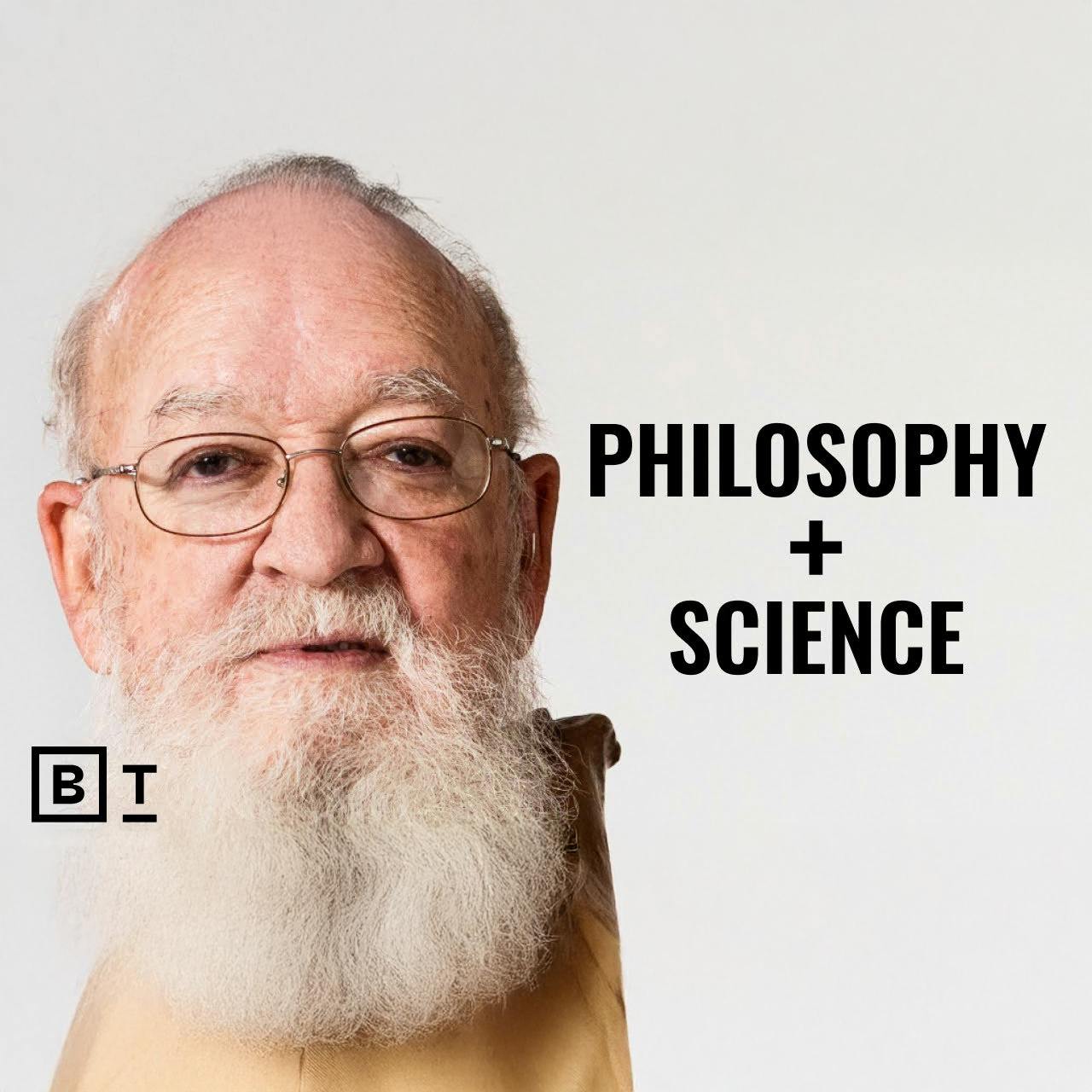
Big ThinkThe 4 biggest ideas in philosophy, with legend Daniel Dennett for Big Think+**🔍 The Magician’s Trick of Philosophy: Daniel Dennett on Why Truth, Darwin, and Dangerous Memes Matter**
What do you do when a magician “saws a woman in half”? You ask how. And if someone says, “It just looks that way,” you’re not satisfied. Philosopher **Daniel Dennett** thinks too many philosophers stop at that lazy answer — and he’s spent his career digging deeper.
Dennett doesn’t just want clever ideas. He wants *explanations*. Like an engineer, he wants to know how minds, beliefs, and culture *actually work*. That’s why he turned to science — especially **evolution...
2025-07-2514 min
Big ThinkLet go of labels. Transform your life. | Ryan HolidayDon’t call yourself “a writer,” just write. Ryan Holiday on how the labels you give yourself can hold you back.
Who are you without the labels? What if you stopped defining yourself by what you do and simply focused on doing it? This episode dives deep into identity, ego, and the struggle of living on your own terms. From walking away from a career that didn’t fit to embracing the discomfort of uncertainty, it’s a raw reflection on the moments that humble us, shape us, and force us to grow. Whether it’s a bookstore bui...
2025-07-2407 min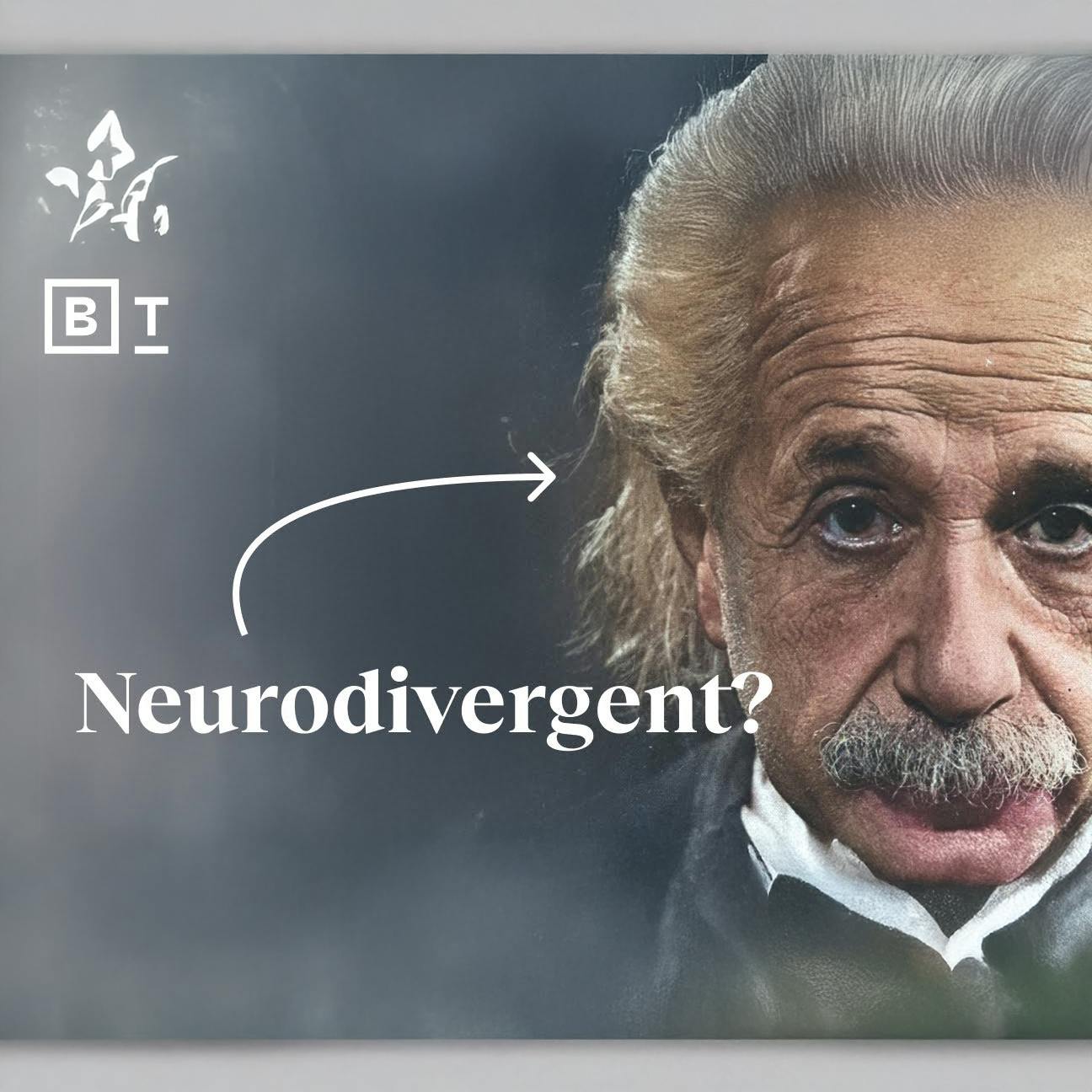
Big Think“Einstein would probably be in an autism program today” | Temple Grandin for Big Think+**"They Thought I Was Stupid" — Temple Grandin's Fierce Rebuttal to a System That Underestimated Her 💥**
From designing the front end of every Cargill beef plant in North America to redefining how we understand the autistic mind, Temple Grandin proves that thinking differently isn't a flaw—it's a superpower. 🧠✨
In this powerful talk, Grandin dismantles the harmful overgeneralization of autism, urging parents and educators to stop obsessing over labels and start recognizing talent. She reflects on her own early challenges—speech delays, relentless bullying, and exclusion from hands-on learning—and how mentors, real-world experience, and visual thinking helped...
2025-07-2310 min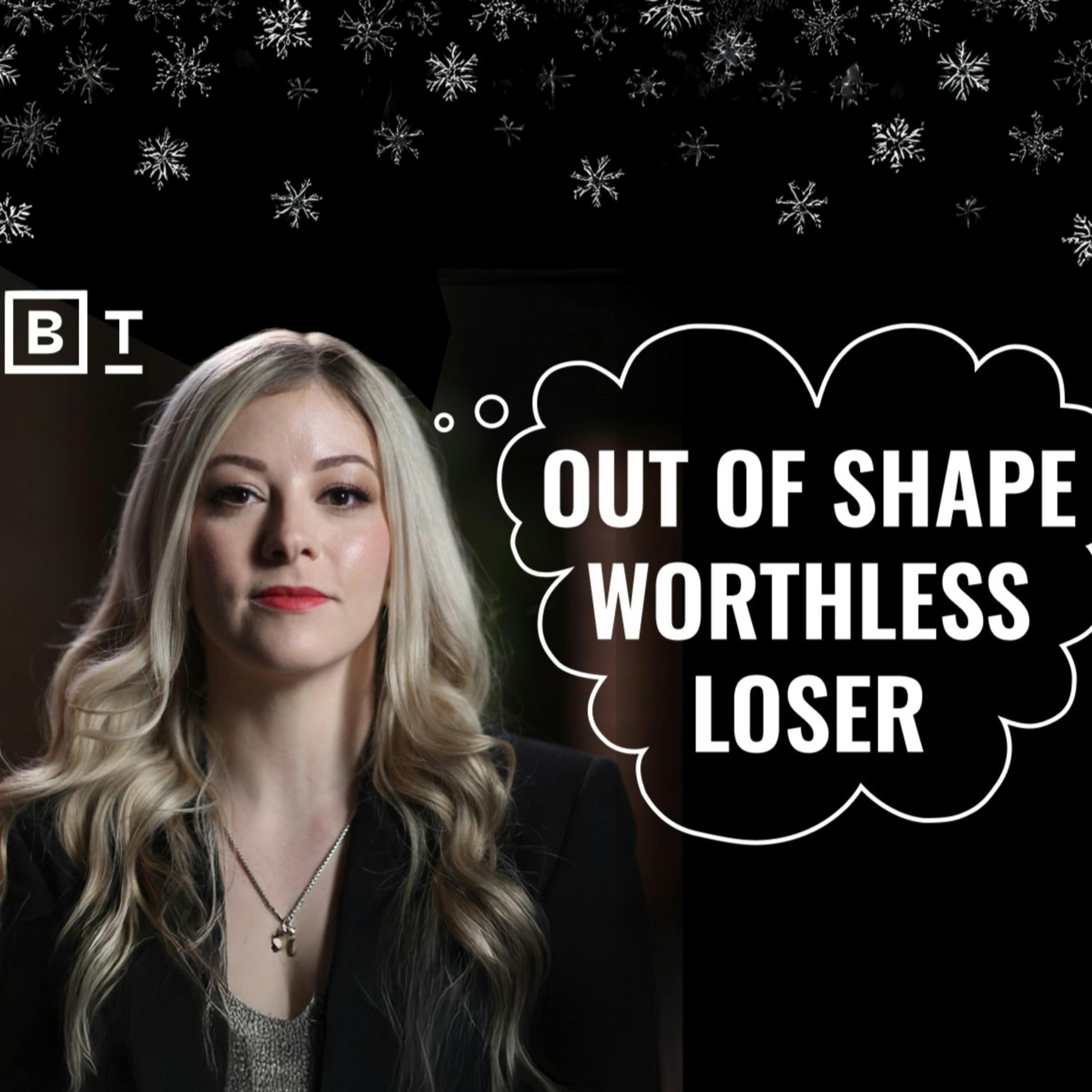
Big ThinkHow I traded perfection for peace | Gracie GoldGracie Gold’s battle with mental health nearly ended her career—and her life. This is how she found her way back to herself.
Gracie Gold, a two-time national champion and Olympic medalist, seemed to embody perfection. But behind the medals and the headlines, her obsession with being flawless led her to a breaking point. After the 2016 World Championships, she spiraled into depression, binge-eating, and a complete loss of identity. Feeling trapped and out of place, Gold hit rock bottom before seeking help at a treatment facility. There, she finally “met herself,” learning to let go of perfecti...
2025-07-2208 min
Big ThinkWhy altruism is selfish | Neuroscientist Abigail Marsh “If we didn't find helping other people pleasurable, we wouldn’t be altruistic.”.
One of the reasons that many people argue that there is no such thing as “true altruism,” that people are never purely motivated to help other people for their own sake, is because, paradoxically, altruism is a source of enormous joy for those who help others.
Those who have made significant sacrifices for the benefit of others, such as donating a kidney, will attest to this. They’ll often say that it was one of the best decisions they made and would make it over a...
2025-07-2207 min
Big ThinkBe a creativity pioneer. Change the world | Adama Sanneh**Can creativity be the key to revolution?** In a world dominated by rigid structures and outdated frameworks, a new movement is rising—one that sees art, culture, and imagination as the driving forces of social change. From recording studios in African prisons to theater schools in vulnerable slums, these Creativity Pioneers are proving that innovation isn’t just about technology—it’s about redefining what’s possible. But can creative solutions truly reshape policies, challenge power, and rebuild democracy? **The spark is there. Will it be enough to ignite a global transformation?**
Creativity is a powerful force for social...
2025-07-2208 min
Big Think3 experts debunk common myths about work | James Suzman, Tyler Cowen, and Cal NewportA lot of modern work exists mainly because we've structured society around the belief that humans *must* work. But this has led to inequality, wasted talent, and systems that no longer serve us. 🏙️
Today, productivity is tracked through pings, emails, and meetings—not real impact. We’re surrounded by abundance, yet opportunity remains unevenly spread. The problem? We measure busyness, not *outcomes*. 📊
Throughout history, work has evolved through three major revolutions:
1. 🔥 **Mastery of fire** — Early humans began outsourcing energy. Cooking made food more digestible and freed up time. This shift opened the door to leisure and in...
2025-07-2130 min
Big ThinkInside the Race to Decode Ancient Roman Scrolls | Casey Handmer for The Freethink InterviewTimestamps:
0:00: The library of Herculaneum
1:17: The Vesuvius Challenge
2:30: A unique approach
3:49: Deciphering ‘crackle’
5:01: Solving an ancient puzzle
Summary:
In AD 79, the eruption of Mount Vesuvius buried the Roman town of Herculaneum, home to the only surviving ancient library. The scrolls, carbonized by the disaster, remained unreadable for centuries. However, modern technology is changing that.
A team led by Brent Seales at the University of Kentucky has worked for 20 years to decode these scrolls. A competition, supported by Nat Friedman and later funded by Elon...
2025-07-2008 min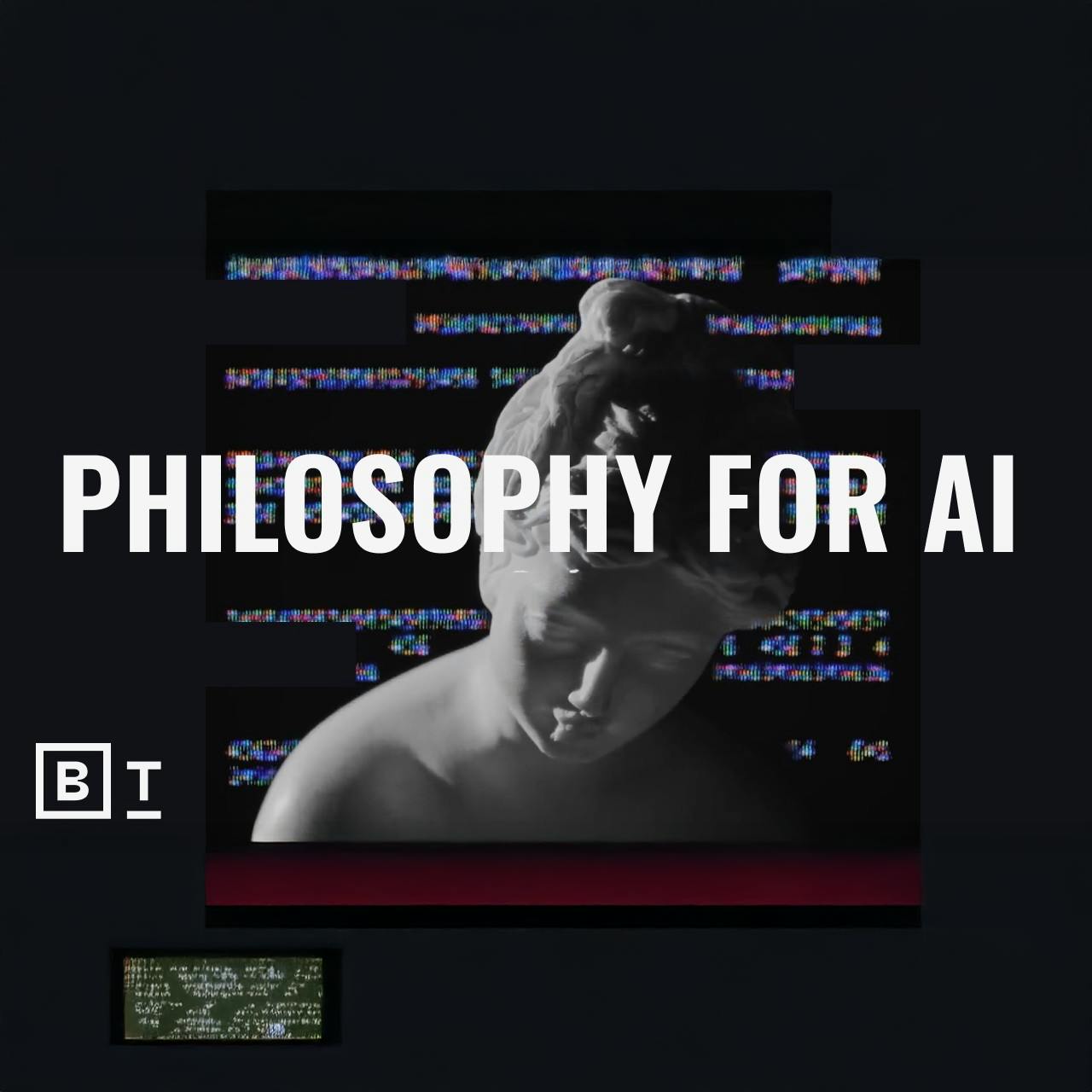
Big ThinkHow ancient philosophers would shape AI | Brendan McCord**🌍 Humanity Stands at the Shore of a New Continent — AI. What Now?**
For 200,000 years, humans were the smartest beings on the planet.
But today, **AI is forcing us to question what it *really* means to live a human life**.
From **Copernicus** to **Darwin** to **Einstein**, science has repeatedly humbled us — displacing us from the center of the universe, showing us we are animals, and revealing that our intuition is flawed.
Now, in the **age of Turing**, it’s AI’s turn to push us toward philosophy again.
### 🤖 From Tool… to Architect?
2025-07-2010 min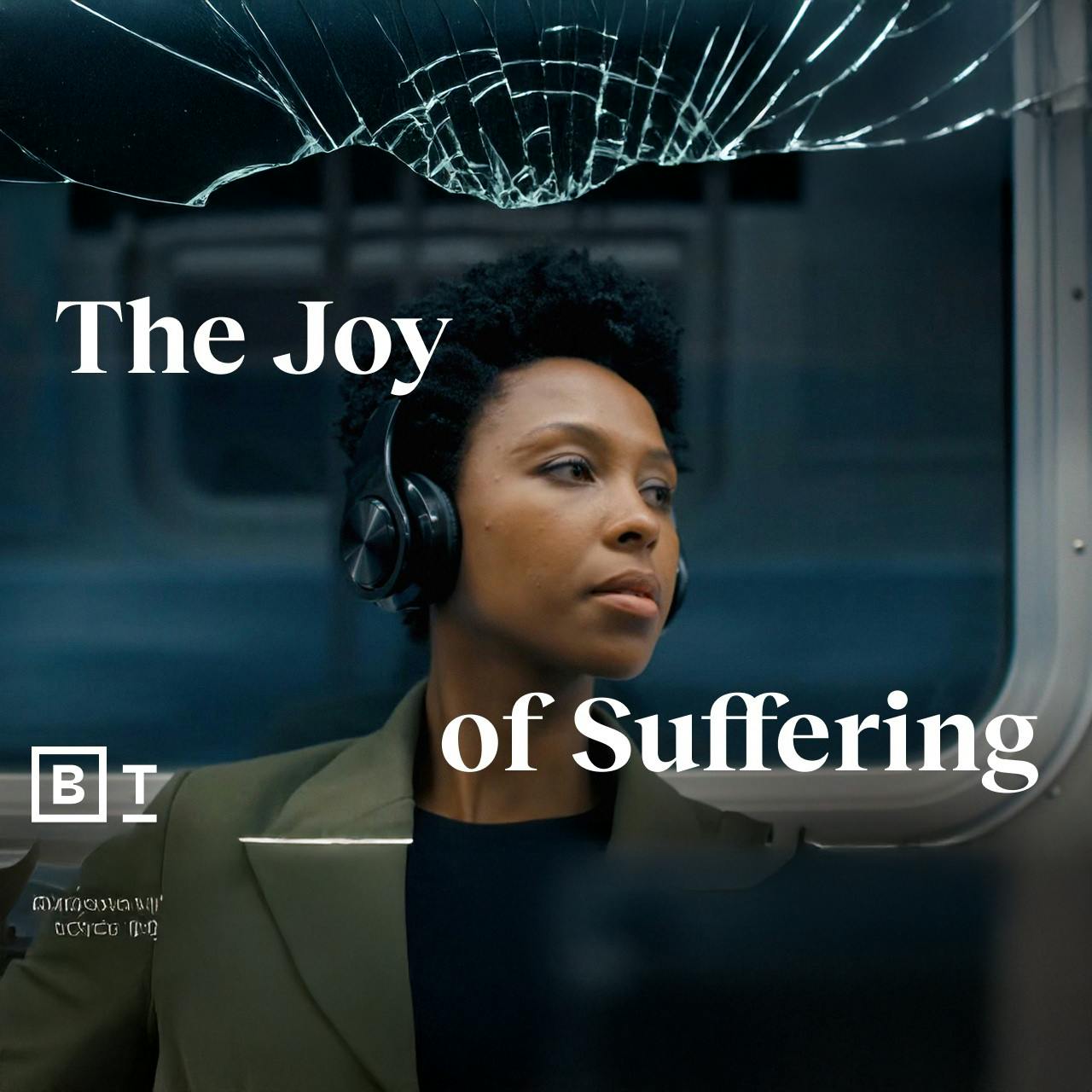
Big ThinkWhy your Epicurean approach will never make you truly happy | Arthur Brooks🌍 **Mother Nature doesn’t care if we’re happy.**
Her only goal? Survival. She wired us to seek food, safety, and reproduction — not happiness.
In fact, 😟 **negative emotions serve a purpose**. Fear, anger, and sadness are evolutionary tools to keep us alert and responsive to threats. Mother Nature *needs* us to be uncomfortable sometimes.
But here's the twist: **Happiness is our responsibility.**
It's a human — maybe even divine — pursuit.
🧘♂️ Enter Epicurus, the ancient Greek philosopher. Contrary to the common image of indulgence, his idea of happiness was simple:
👉 **Eliminate suffering...
2025-07-1404 min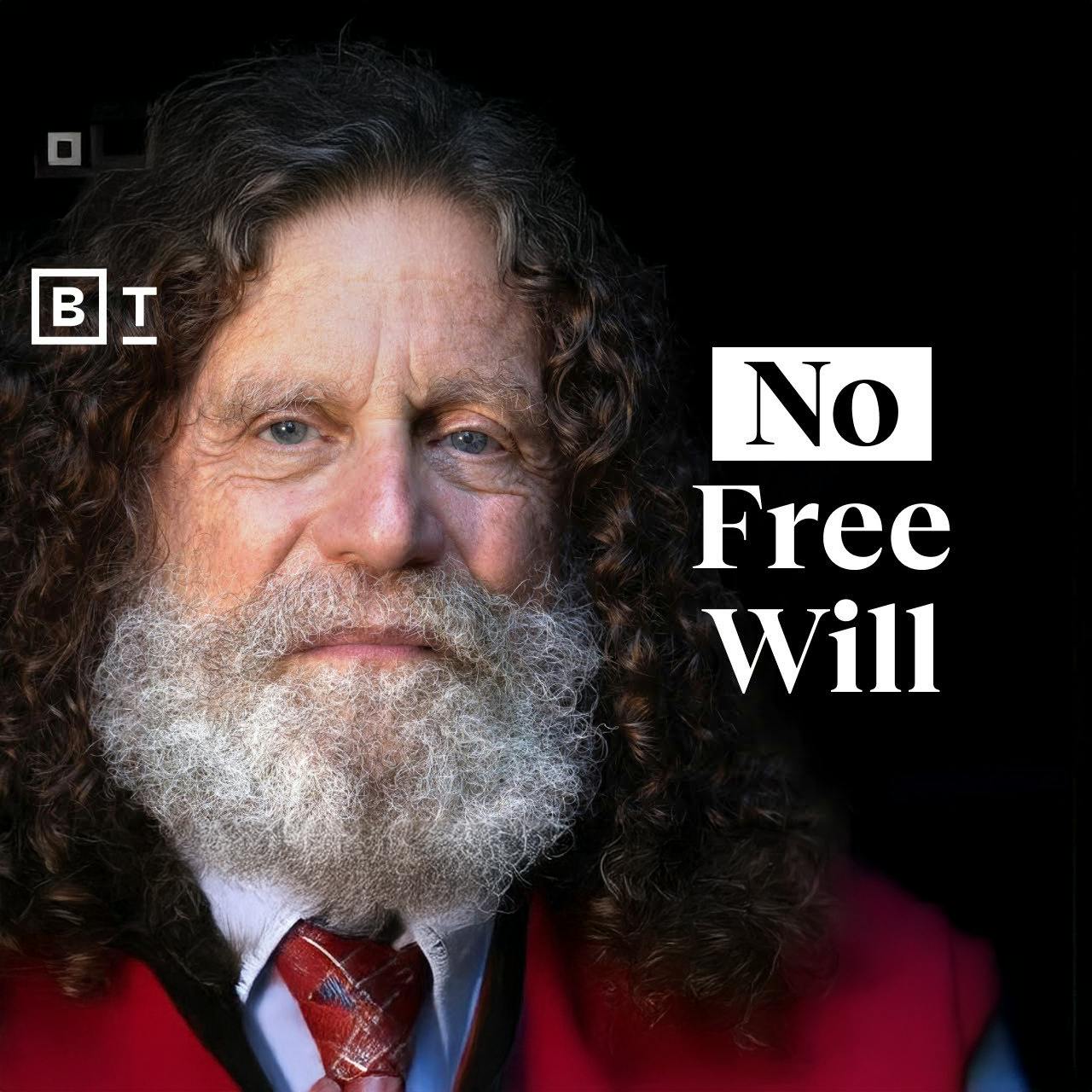
Big ThinkYou have no free will at all | Stanford professor Robert SapolskyHow your biology and environment make your decisions for you, according to Dr. Robert Sapolsky.
Robert Sapolsky, PhD is an author, researcher, and professor of biology, neurology, and neurosurgery at Stanford University. In this interview with Big Think’s Editor-in-Chief, Robert Chapman Smith, Sapolsky discusses the content of his most recent book, “Determined: The Science of Life Without Free Will.”
Being held as a child, growing up in a collectivist culture, or experiencing any sort of brain trauma – among hundreds of other things – can shape your internal biases and ultimately influence the decisions you make. This, explains Sapolsky, means that free...
2025-07-131h 00
Big ThinkWhat the news won't tell you about climate change | Hannah Ritchie, PhD**🌍 Feeling hopeless about climate change? You're not alone — but the data tells a more hopeful story.**
Oxford researcher Hannah Ritchie was once overwhelmed too. But by zooming out and studying centuries of progress, she discovered something remarkable: humanity *has* solved massive environmental problems before — and we can do it again.
She breaks climate change down into four critical battlegrounds: **energy, transport, food, and construction**. The good news? We already have the tools — solar and wind are now cheaper than coal, EVs are surpassing gas cars in sales, and we can cut land use and emissions by rethin...
2025-07-1315 min
Big ThinkI help people die – here’s what they’ve taught me about living | Alua Arthur“I want people to know that their lives matter and that their deaths ultimately will too.” How a journey to Cuba made Alua Arthur confront her own mortality, and ultimately led her to her career as a death doula.
Alua Arthur, a death doula, never expected to find her calling in the space between life and death. Struggling with depression and a sense of not belonging, she was searching for meaning when a chance encounter in Cuba changed everything. After encountering death in her personal life, she began to confront her own mortality—and realize she wasn’t truly...
2025-07-1209 min
Big ThinkFormer CIA agent: The truth about manipulation | Andrew Bustamante“What CIA taught me is that manipulation is one side of a coin, and on the other side of the coin is the word motivation.”
Generally, we think people who manipulate us are bad guys, but people who motivate us are heroes, but the truth is far more complex, argues Andrew Bustamante. "The skills that go into both motivation and manipulation are almost the same skills. The same level of persuasion, the same level of influence, the same level of charisma and dynamic creative thinking drives us to both be manipulated and be motivated."
In this...
2025-07-0916 min
Big ThinkMaster your anxiety. Unleash your genius | Jesse Eisenberg for Big Think+- Jesse Eisenberg reflects on the dual forces of motivation: talent, creativity, and positive effort, versus anxiety, fear, and self-doubt. 😰 He admits that fear of failure often drives him more than positive factors, with anxiety becoming a source of fuel to keep pushing forward. 🔥
- He shares his self-critical tendencies and discusses how public criticism affects him. Eisenberg doesn't watch his own movies or read reviews, and he avoids places where he's reminded of his work. 🚫🎬
- Transitioning into directing, Eisenberg reveals his challenges with leadership. He's not the loud, confident leader but thrives by understandin...
2025-06-2711 min
Big ThinkConflict, crisis, consumption: What’s eating our nation? Amanda Ripley: Full Interview**🔥 *Hooked on Hate: Why We Can’t Look Away from Conflict***
In *High Conflict*, Amanda Ripley dives into the dark heart of human friction — that toxic, magnetic version of conflict we fall into and can’t escape. It’s not just fighting — it’s a cycle of obsession, identity, and self-destruction. Whether it’s politics, relationships, or gang wars, the pattern is the same: we become trapped in an all-or-nothing mindset, harming the very things we swore to protect.
**🧠 Why We Get Stuck**
Ripley compares high conflict to a tar pit. It *looks* calm, even inviting...
2025-06-261h 25
Big ThinkHow to see clearly through deceptive emotions | Kristen Lindquist**🌍 Emotions Are Not Universal — They’re Cultural Lenses Shaping Reality**
We often think emotions are hardwired facts — but in truth, they’re deeply shaped by the culture we live in. Emotions *feel* like objective reality, but they’re more like tinted glasses that color our perception.
🧠 **Kristen Lindquist**, professor of psychology and neuroscience, explains how emotion is both *biological* and *cultural*. While our brains come with the machinery to feel, *what* we feel — and *how* we interpret those feelings — is learned through culture, like language or art.
For example:
- In the U.S., anger = dr...
2025-06-2319 min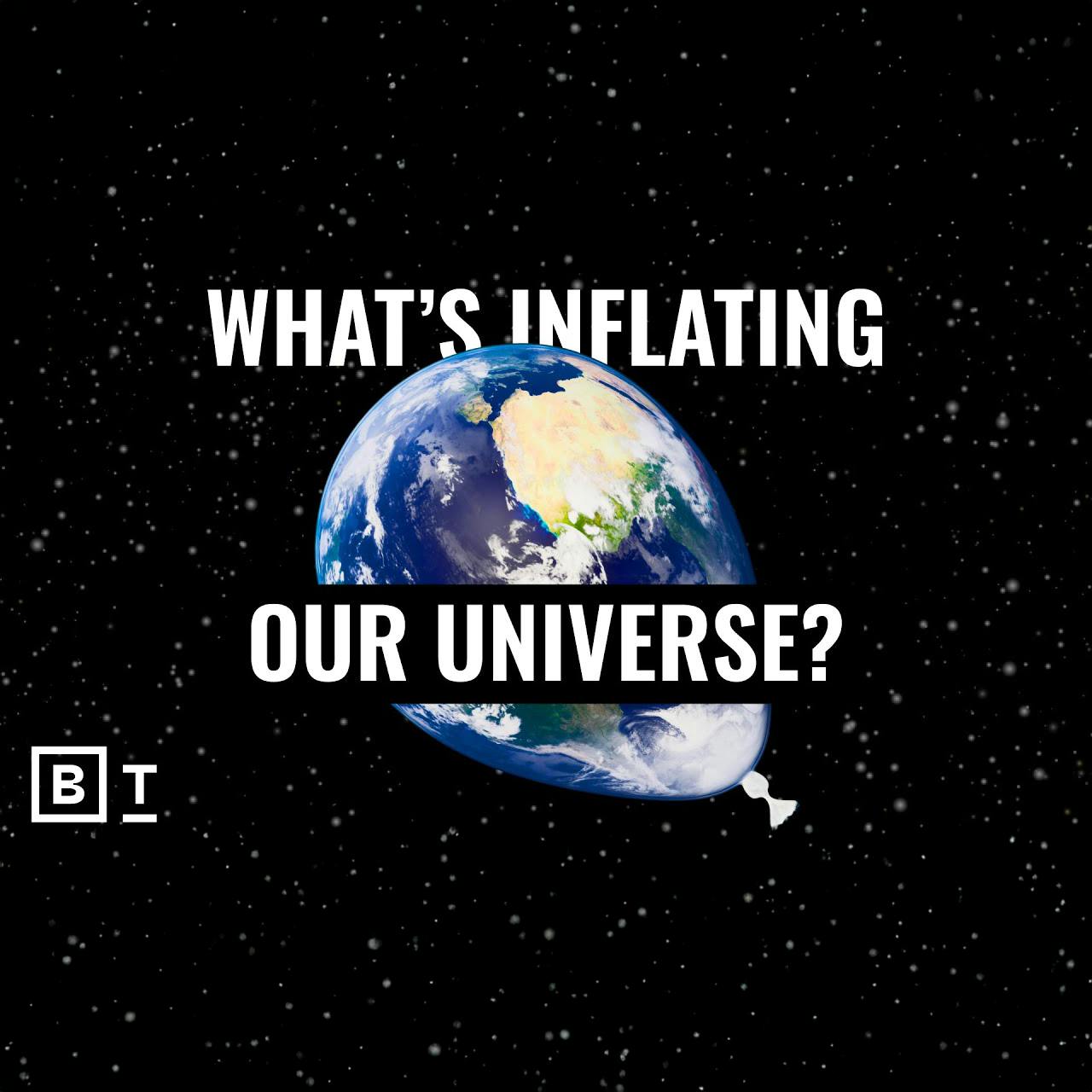
Big ThinkOur universe keeps expanding. But why? | Lee Cronin**🌌 What If the Universe Expands Because of… Selection?**
Sounds wild? It is. But maybe it’s not nonsense.
Let’s dive into this provocative idea — that **life, selection, and novelty** might be *fueling* the Universe’s expansion.
### 🌀 The Setup: A Universe in Motion
The Universe, as far as we can tell, has been **expanding** ever since the Big Bang.
Not just drifting outward — **accelerating**.
But **why** is it expanding faster?
And what’s it expanding *into*?
(Trick question — probably *nothing*. There’s no “outside” to space-time.)
2025-06-1504 min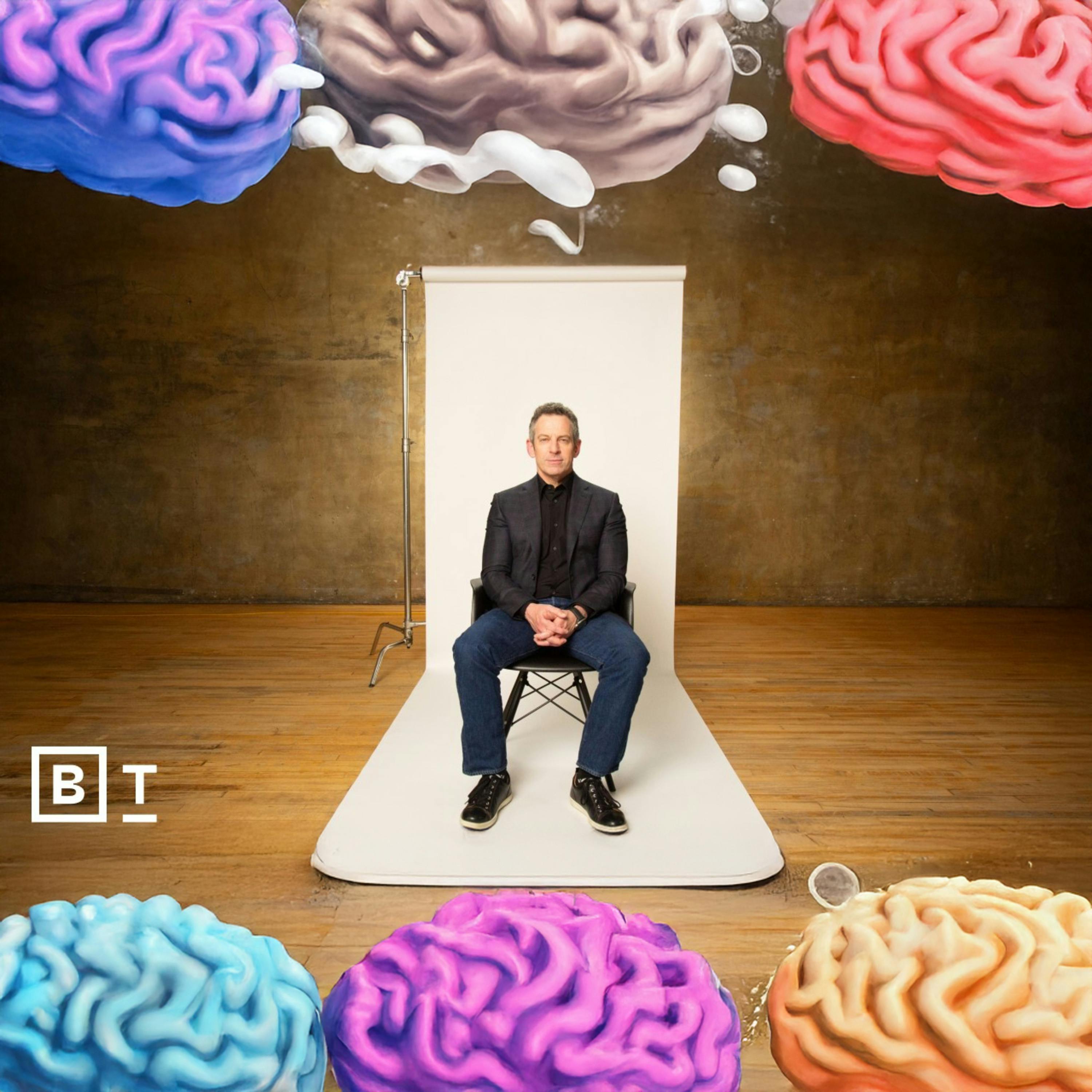
Big ThinkSam Harris: Breaking the spell of propaganda | Full Interview"We're awash in lies and misinformation to a degree that was not possible before we got the internet and in particular before we got social media."
Our world seems more fragmented than ever. Author and podcaster Sam Harris thinks that an open conversation with 8 billion strangers could solve that. Here's his full Big Think interview, in its entirety.
Sam argues that the real problem isn’t bad people but bad ideas. He believes there’s a growing “crisis of meaning” caused by secularism, social media, and political division, making honest discussions harder.
He points o...
2025-06-041h 48
Big ThinkThe disappearance of men | Christine Emba**“Men Are in Crisis—But No One’s Listening”**
Today, masculinity is often discussed with a sneer. Phrases like “men are trash” and “toxic masculinity” dominate public discourse, leaving little room for empathy—or solutions. Yet, beneath the image of male power (presidents, CEOs, dominance), lies a quieter truth: **most men are struggling**.
Christine Emba, author of *Rethinking Sex: A Provocation*, argues that men are indeed in crisis—across work, education, relationships, and identity. As the economy shifts from industrial labor to credentialed, white-collar work, many men are being left behind. College dropout rates are soaring—70% of pande...
2025-06-0414 min
Big ThinkMeet the scientist that made a machine to measure life itself | Lee Cronin**🧬 What *Is* Life, Really? And Could We Build It From Scratch?**
What if the key to understanding life… is not *what it’s made of* — but *how it assembles*?
Ask ten scientists “What is life?” and you’ll get a thousand different answers. But **Lee Cronin**, the chemist behind **Assembly Theory**, offers a radical simplification:
> **Life is any system that can produce complexity at scale.**
Not DNA, not metabolism — just *non-random complexity*, multiplied.
### 🔧 Enter “Assembly Theory” — Life by the Numbers
Instead of asking “Does it have genes?” Cronin asks:
**How mu...
2025-06-0204 min
Big ThinkHow to date, mate, and find fulfillment | Helen Fisher & more**Love Isn't a Phase—It's Hardwired in Your Brain 🧠❤️**
Anthropologist Helen Fisher reveals that sex drive, romantic love, and attachment aren't fleeting feelings—they're distinct *brain systems* rooted in our biology. Sex starts in the brain, not the body. Love activates the brain’s dopamine circuits, lighting up like an addiction, especially when love is lost. In fact, heartbreak activates pain and craving centers, proving that love, in its highs and lows, is as primal as hunger or fear.
To maintain long-term love? You must nurture all three systems:
- **Sex drive**: Have regular, enjo...
2025-05-2730 min
Big ThinkIs it too late for us to slow climate warming? | Hannah Ritchie, PhD“I think the key point is that doesn't mean game over. That doesn't mean we're flipped into a world, and to a point of no return.”
**🌍 The 1.5°C Climate Goal Might Be Slipping Away — But It’s Not Game Over**
The once-ambitious goal of limiting global warming to 1.5°C? It’s likely no longer within reach, says a climate expert. But that’s not a reason to give up. Every fraction of a degree matters — and fighting for 1.6, 1.7, or 1.8°C still means reducing risk, damage, and loss.
The Paris Agreement aimed to keep temperatures "well b...
2025-05-2707 min
Big ThinkWhat are the chances of YOU existing? A biologist explains | Sean B. Carroll**🌍 Earth’s History Hinges on Chaos — and You Are Its Luckiest Accident**
What if your existence was only possible because of two massive cosmic collisions — and one lucky sperm?
Biologist and author **Sean B. Carroll** unveils a breathtaking truth: the evolution of life on Earth wasn’t a planned journey but a **wild series of accidents**. A 6-mile-wide asteroid struck the *exact* spot on Earth with just the right chemical mix to wipe out the dinosaurs, giving mammals — and eventually humans — a shot at dominance. A second monumental collision — India slamming into Asia — sparked the Ice Age, a trial by...
2025-05-2714 min
Big ThinkMichael Watkins: You can’t afford to be a dinosaur | Big Think+
Folllow this Podcast for daily Episodes
------------------------- Learn more about your ad choices. Visit megaphone.fm/adchoices
2025-05-2610 min
Big ThinkBecome excellent. Be unreasonable. | Will Guidara for Big Think+Will Guidara, owner of iconic restaurants such as Eleven Madison Park, explains how hospitality is the number one thing that can help your business truly succeed.
Eventually, someone is going to make a better product, or build a better brand, than you have. The way to keep people from switching sides? Harboring a loyal customer base. The way to harbor a loyal customer base? Relentless hospitality.
Famed restaurateur Guidara credits his successful career to what he calls “Unreasonable Hospitality” - also the title of his book - which he achieved by abiding by three main keys: Being present, taking the...
2025-05-2608 min
Big ThinkThe Hard Problem of Consciousness | Annaka Harris"Everything that we care about, everything we experience, everything we know, we know it through our conscious awareness of it."
Consciousness is everything we know, everything we experience. The mystery at the heart of consciousness lies in why our universe – despite teeming with non-conscious matter – is configured in a way where it's having a felt experience from the inside. Modern neuroscience suggests that our intuitions about consciousness are incorrect. And so, it's possible that we've been thinking about consciousness the wrong way entirely, says bestselling author Annaka Harris.
Consciousness is everything we know, everything we expe...
2025-05-2313 min
Big ThinkLoneliness: The silent killer, and how to beat it | Richard Reeves & moreThree psychology and sociology experts, Robert Waldinger, Michael Slepian, and Richard Reeves come together in this compilation to discuss the psychology of loneliness and the way we can combat the “friendship recession.”
It’s 2024. It’s harder than ever to foster deep connections with others. Everyone feels like they’re missing out on friendships, and every day of isolation makes it even harder to escape the rut.
From keeping secrets to workism, these experts are unpacking why we feel lonely and suggesting the ways we can combat it. They encourage us to reach out, be vulnerable, and prioritize...
2025-05-2228 min
Big ThinkThe smartest people have mastered these 6 core skills | Michael Watkins for Big Think+**Are Great Strategic Thinkers Born or Made?**
The answer is simple: Yes. Strategic thinking, like many human capabilities, is a blend of nature, nurture, and experience. While some individuals may have a natural aptitude for recognizing patterns and making insightful decisions, the skill can also be developed through deliberate effort and training.
Michael Watkins, professor of leadership at IMD Business School, explores this in *The Six Disciplines of Strategic Thinking*. He argues that while an initial endowment helps, true mastery comes from practice and refinement. Just as a world-class marathoner needs both genetics and training...
2025-05-2209 min
Big ThinkHannah Ritchie: We can solve our biggest environmental problems | Full InterviewIn this episode,
researcher Hannah Ritchie discusses the realities of climate change, the progress made, and the challenges ahead. She explains how her perspective shifted from pessimism to optimism by analyzing historical data and real-world solutions. Ritchie breaks down the main drivers of climate change, evaluates the feasibility of the Paris Agreement targets, and highlights four key sectors—energy, transport, food, and construction—that must be transformed to reduce emissions. While the challenges are significant, she emphasizes that solutions exist and that meaningful progress is possible.
-------------------
Folllow this Podcast for daily Episodes
...
2025-05-221h 24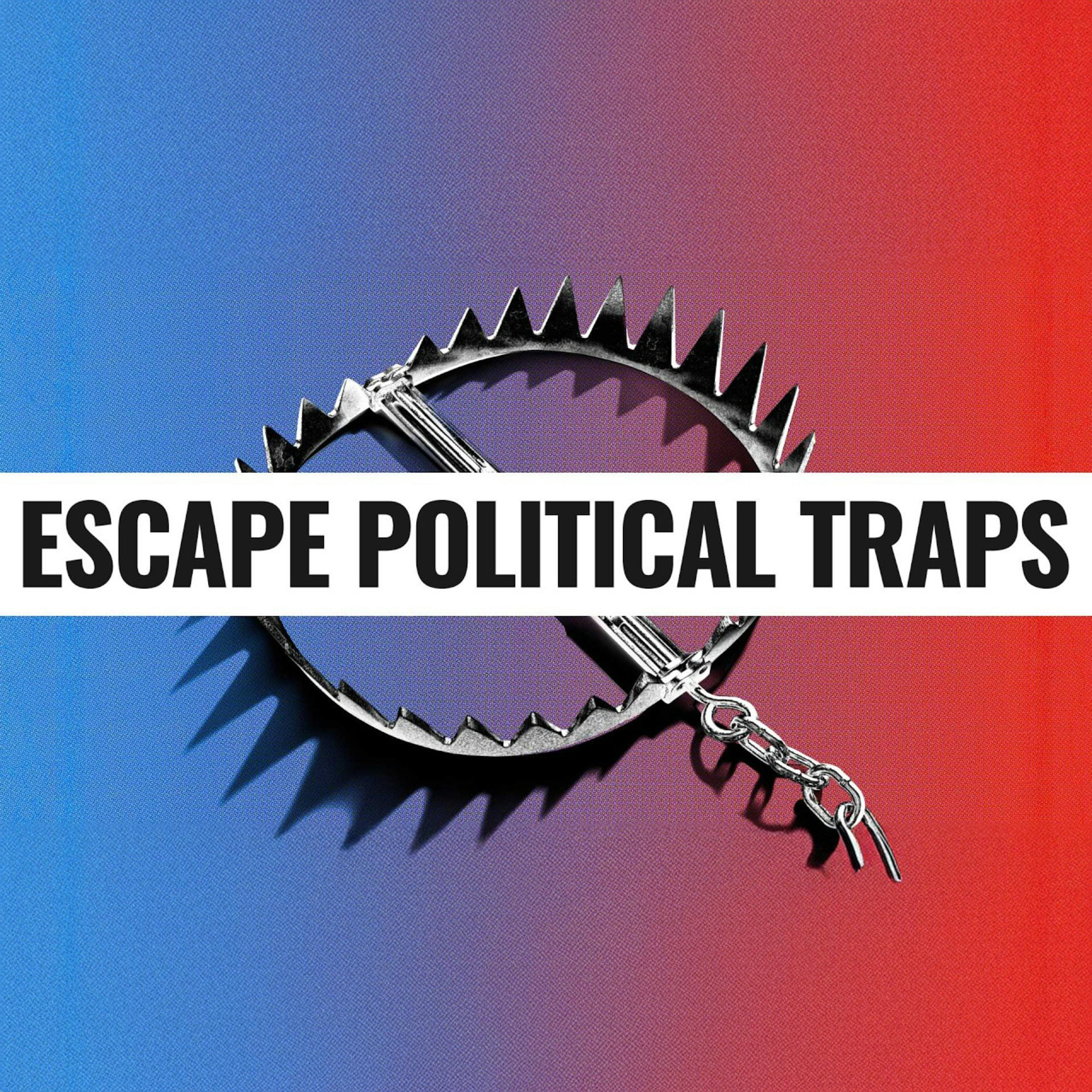
Big ThinkAmerica is rife with political traps. What’s your escape route? | The Dilemma Ep. 3Can we let go of the need to win arguments without losing a part of who we are?
As Founder of Interfaith America Eboo Patel explains, there’s something romantic about a fist-in the-air approach, so much so that we often become caught up in the roles we play and the persona we adopt for ourselves. This can cause us to be perceived in ways we never intended; we can become misinterpreted, and even more disconnected to our true selves and intentions. How easy is it to ride our anger and our outrage, to chase the adrenaline of...
2025-05-2120 min
Big ThinkThe science of menstruation in 10 minutes | Dr. Jen Gunter🩸 **“No, Periods Aren’t for Detox – And Humans Don’t ‘Cycle Sync.’”**
Renowned OBGYN Dr. Jen Gunter busts some of the most harmful myths about menstruation, from the fantasy of pheromones and "cycle syncing" to the false idea that periods cleanse the body of toxins. Menstruation isn’t a monthly detox—it’s a complex biological process deeply tied to human evolution, reproduction, and health.
She warns: most people, including many doctors, are dangerously underinformed about what a normal cycle looks like. And that ignorance isn’t just annoying—it’s being weaponized by laws that treat women as little mo...
2025-05-2013 min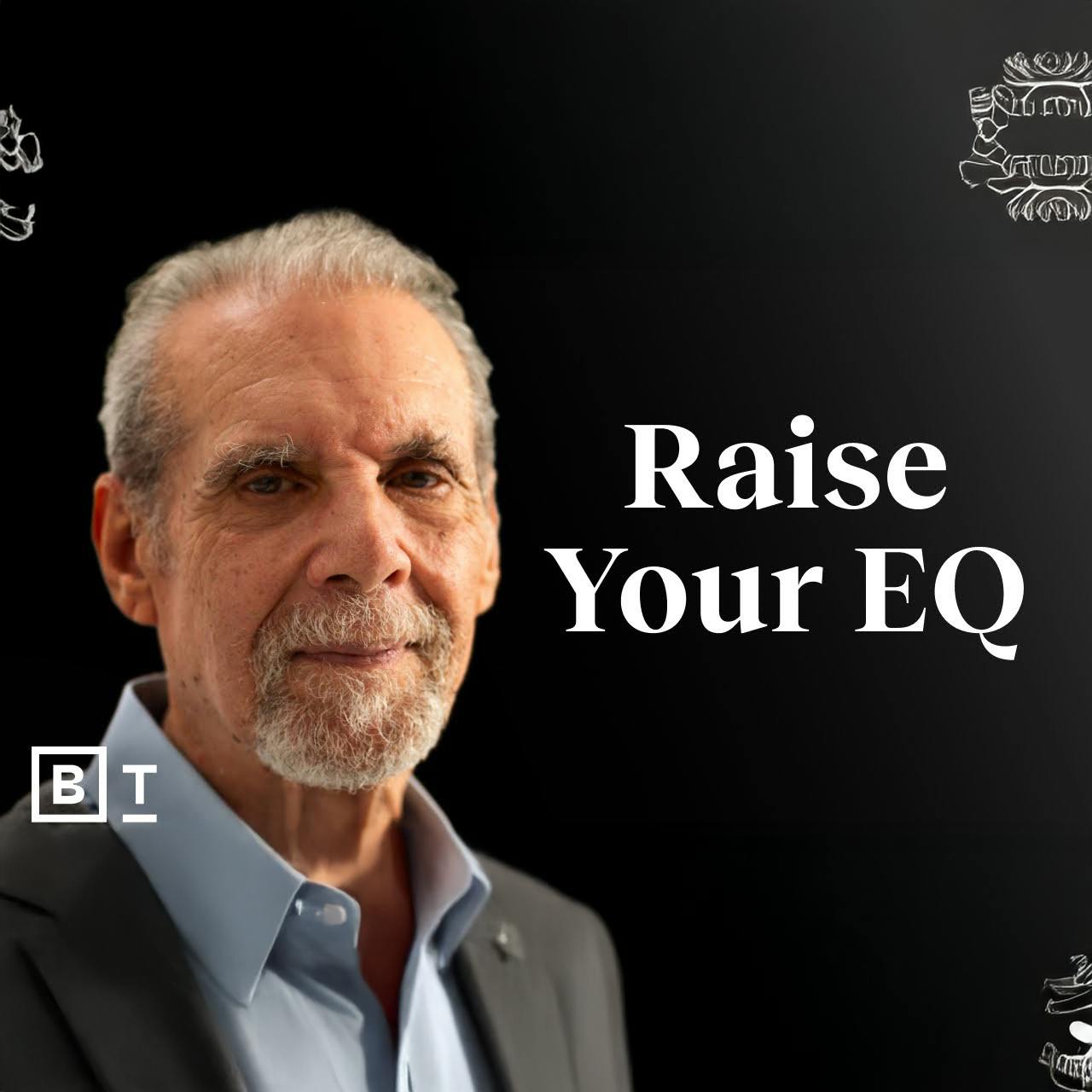
Big Think12 traits emotionally intelligent people share (You can learn them) | Daniel Goleman for Big Think+Sure, IQ is important, but is it as impactful as emotional intelligence? Renowned psychologist and author Daniel Goleman explains.
The concept of emotional intelligence (EQ) can be traced back to ancient philosophies, but it was Goleman’s bestseller ‘Emotional Intelligence’ that popularized the term in 1995. According to Goleman, while IQ and smarts can get you good grades and jumpstart your career, it's EQ (what the psychologist often refers to as EI) that sets apart the top performers and leaders in their careers.
Unlike IQ, which remains relatively static throughout life, emotional intelligence can be developed and refined at any age. G...
2025-05-1614 min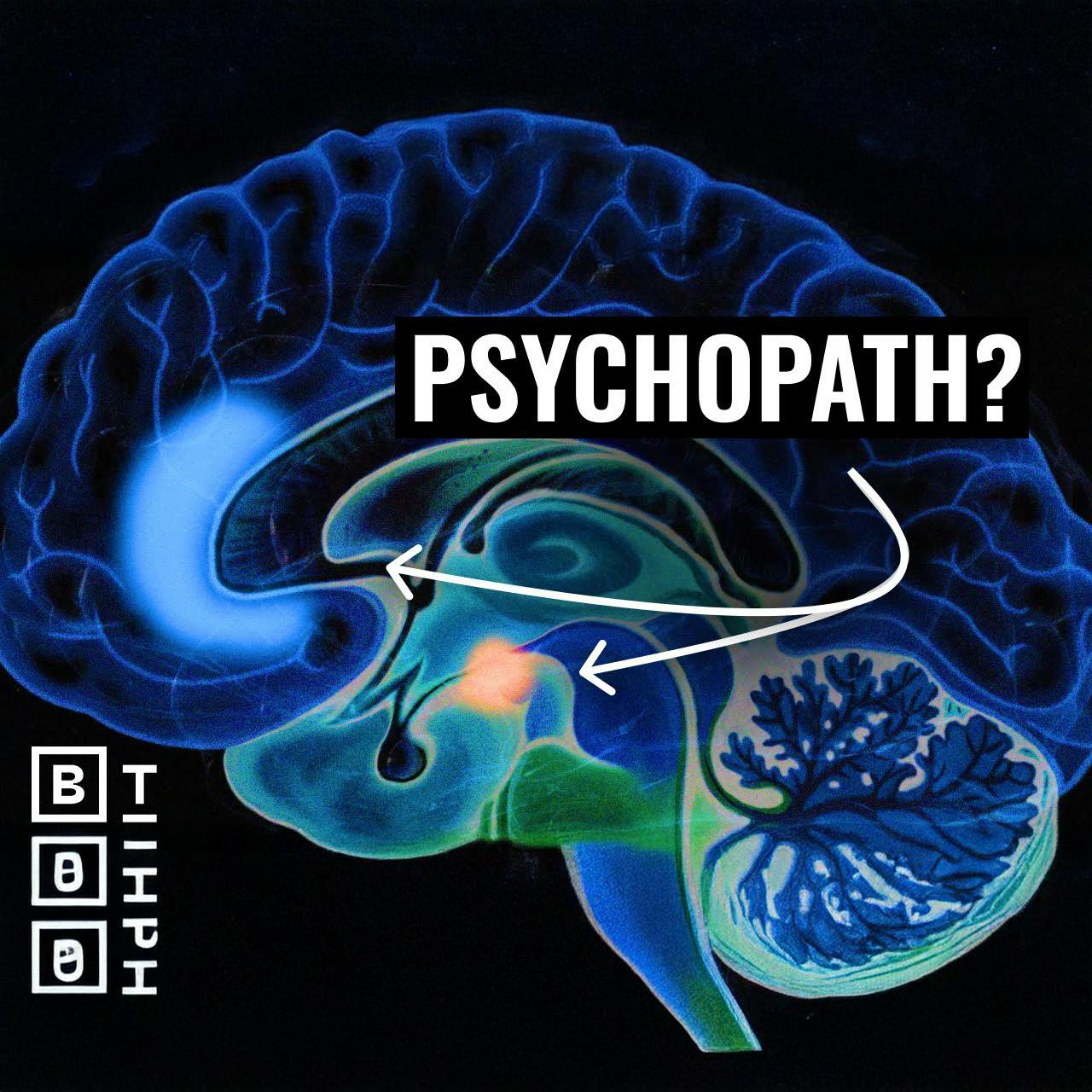
Big ThinkShe studied extreme psychopaths. Here’s what it taught her about human nature | Abigail MarshAre humans naturally selfless? Psychologist Abigail Marsh is using studies on psychopathy and altruism to find out.
Abigail Marsh, a psychology and neuroscience professor at Georgetown University, explains how the world is impacted by those with psychopathy, and, additionally, those who practice extreme altruism.
Psychopathy, she says, is a neurodevelopmental disorder affecting a small percentage of people, who are different from a very early age due to their unique brain development. Conversely, she talks about people who are exceptionally altruistic—those who go out of their way to help others, often at great personal risk. These individuals ar...
2025-05-1613 min
Big ThinkSearching for aliens and Earth 2.0 | David Kipping: Full Interview"Do we want to understand whether we are alone in the universe, whether there is other life out there? That is one fundamental question that drives many astronomers."
00:00:00: The search for habitable worlds, and extraterrestrial life00:00:17: Are there different types of astronomers?00:01:29: What is an exoplanet?00:02:56: Were there previous claims of exoplanets?00:04:29: Theoretically, how many exoplanets could exist?00:05:43: How do we search for exoplanets?00:09:06: What are blueshift and redshift?00:10:10: Why are you interested in exomoons?00:14:48: What are the challenges to finding exomoons?00:16:24: Is there evidence of exomoons?00:19:08: Could exomoons be inhabited? 00:21:10: How could new telescopes affect our s...
2025-05-161h 40
Big ThinkThe illusion of self and the illusion of free will, explained | Annaka Harris“Many people get stuck in feeling responsible for their psychological state, and there's a way in which simply being with whatever uncomfortable emotions rather than believing that you are controlling them can be extremely beneficial for psychological wellbeing.” Are you actually in the driver’s seat of your own life? The illusion of free will says that our choices are determined by factors greater than our intentions and actions, that total conscious control is purely an illusion. We may assume that illusions like this have evolved for their usefulness, but most illusions that we experience are actually glitches, says bestsel...
2025-05-1013 min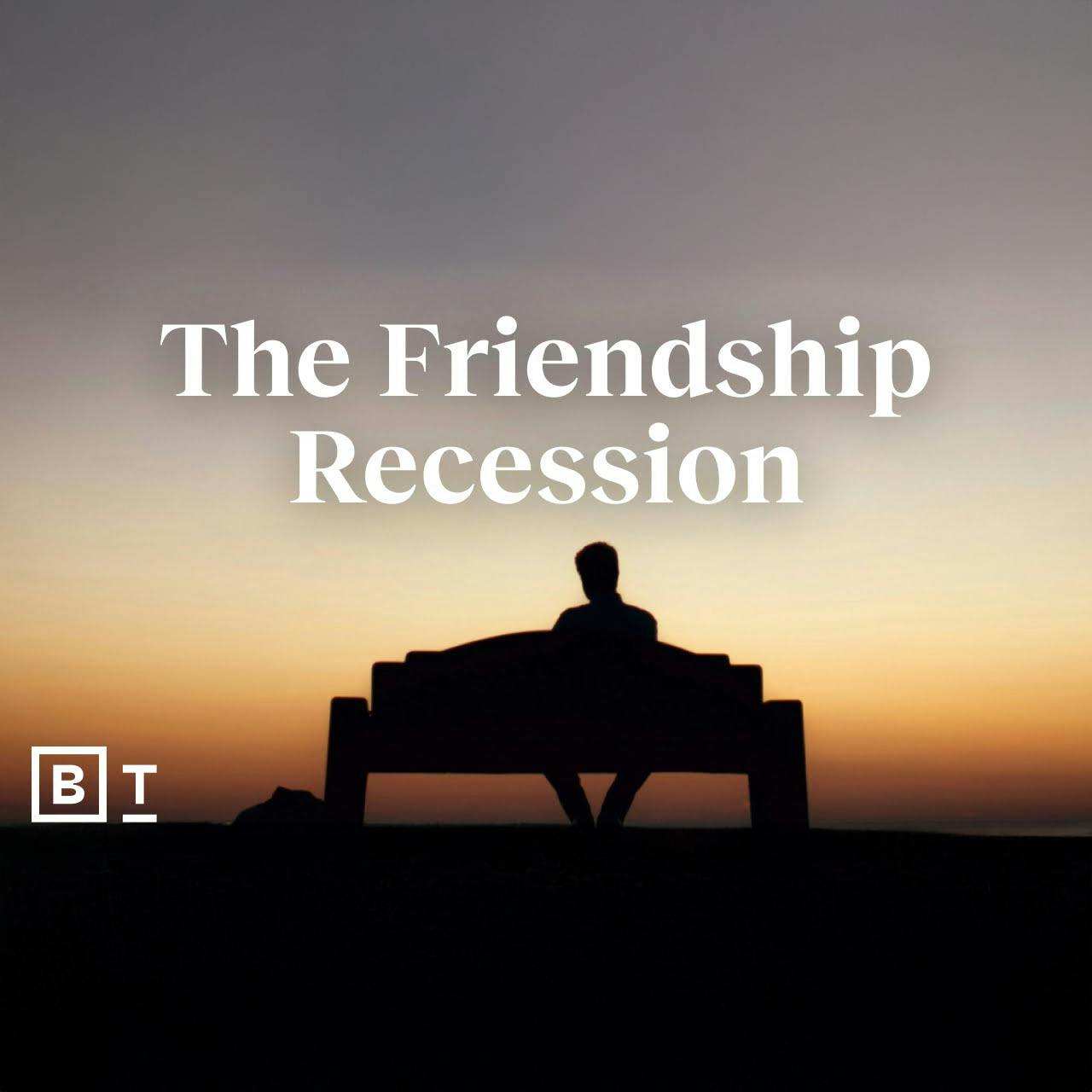
Big ThinkHow social media sabotages your brain’s friendship mechanism | Arthur BrooksThanks to modern-day social media, it’s easier than ever to connect with the people you care about. But is this really the case? Professor Arthur Brooks discusses how social media is actually harming our ability to socialize, and proposes a way to fix it.
Oxytocin, the bonding neuropeptide in our brains, needs eye contact and touch—things we don’t get from Zoom or social media. This lack leaves us feeling hungrier for connection, which only fuels the loneliness epidemic, and causes us to further distance ourselves from others.
Does this mean we should ban so...
2025-05-1004 min
Big ThinkPsychopathy can be treated—but here’s why it rarely is | Prof. Abigail MarshPsychopathy is actually a spectrum, and care is the variable that differentiates true psychopaths from highly empathetic people. Here’s why that matters, and how it can be treated, according to Professor Abigail Marsh.
Humans are among the most altruistic species that we’ve studied, due to our alloparental instincts – a trait we evolved into that allows us to care for offspring who are not our own. Across species, the ones who alloparent the most appear to be the most altruistic. Very altruistic people seem to be the opposite of those who are psychopathic in terms of their...
2025-05-1012 min
Big ThinkThe mindblowing way rocks “survive” and evolve | Robert HazenHow did mineral evolution shape our planet? Robert Hazen, a renowned mineralogist, shares his fascinating insights into the co-evolution of minerals and life on Earth.
Science has shown us that the universe started with a mere few dozen minerals, and those have since evolved into thousands. This discovery has proven that evolution does not only apply to living systems, like flora and fauna, but is relevant to non-living systems as well.
Hazen highlights a deeper connection between these living and non-living systems, emphasizing that all evolving systems share three critical characteristics: interacting components, the generation...
2025-05-0904 min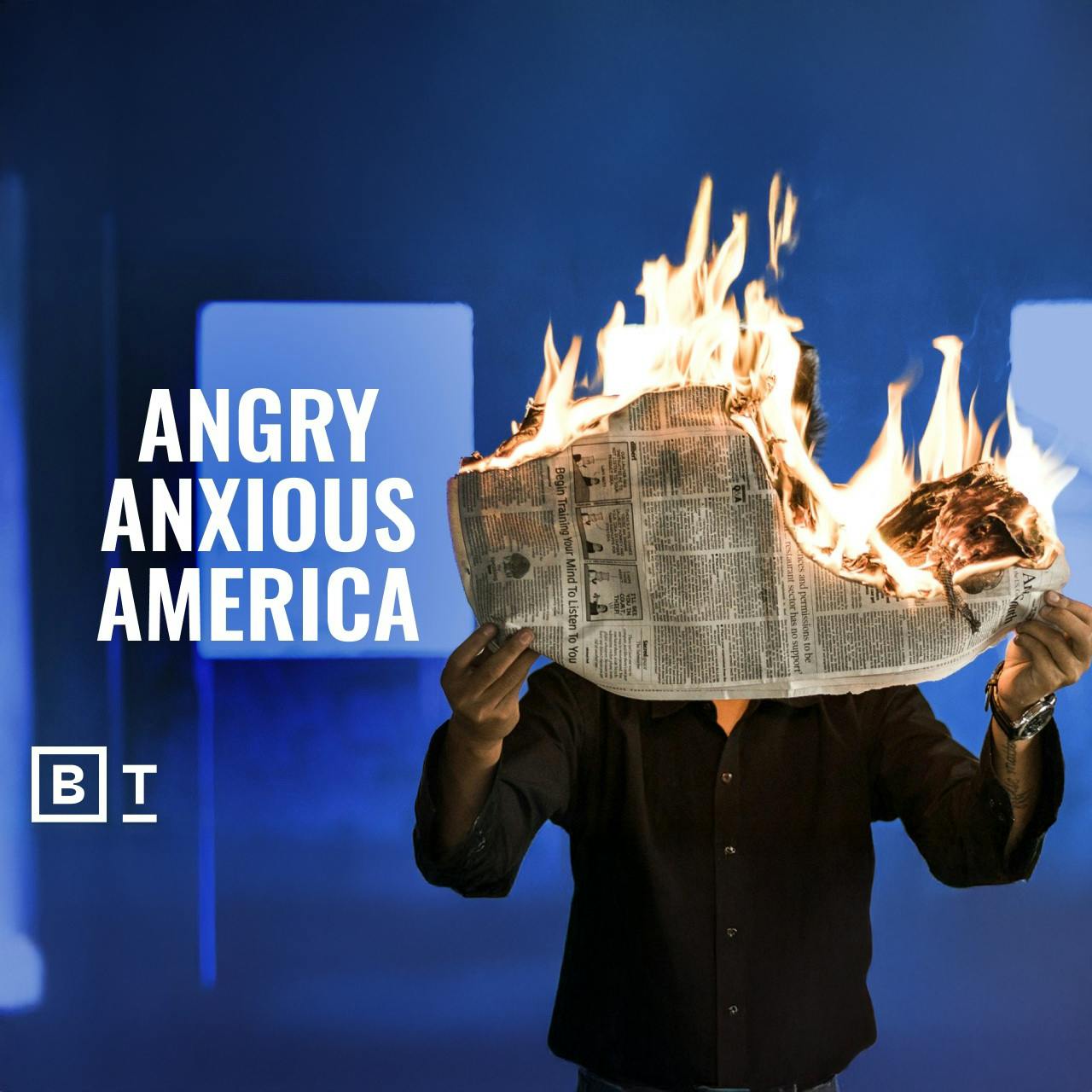
Big ThinkNews media wants to keep you angry, anxious, and depressed | Amanda Ripley"These days, no national news network is trusted by more than half of American adults. And that's a problem."
The news is broken. In the United States, it may feel like our news cycle is designed to make people anxious and depressed. It may feel like journalism exploits our divisions and amplifies our fears more than ever. But how can we fix it?
Amanda Ripley has been a journalist for over 20 years, and she’s diagnosing one of the US’ biggest problems: Our news. Ripley says that adding these 3 considerations back into the equation could save...
2025-05-0914 min
Big ThinkHow we fundamentally misunderstand ‘well-being’ | Mary Helen Immordino-Yang### 🧠 What *True* Well-Being Really Means
Most people think of well-being as just the absence of illness or stress.
But neuroscience and social science show it's much deeper — **it's about balance** and the **flexibility to manage yourself**.
#### 🔑 Key Takeaways:
- **Well-being is both a capacity and a state**: It’s not just a feeling, it’s a skill you build.
- **It's created from within**: Through your own actions and mindset, not something applied from outside.
### 💡 Practical Ways to Build Well-Being:
1. **Nurture strong relationships** – Prioritize time with people you c...
2025-05-0803 min
Big ThinkHow should we measure intelligence? | Mary-Helen Immordino Yang📏 **Do we really need to measure intelligence?**
In today’s culture, there's a constant push to quantify everything — including how "smart" someone is. But are test scores really telling us the full story?
Our current education system defines intelligence as a student’s ability to recall and reproduce information on a standardized test. This narrow approach may reveal how well a child performs *under specific conditions*, but it says little about their **true potential**.
📚 The real issue?
This system often undermines a child’s sense of agency. It trains them to solve problems...
2025-05-0702 min
Big ThinkWhy loneliness feels so real, even when it’s not | Kasley KillamFrom a young age, we’re taught that being alone means something’s wrong with us 😔 — that the person sitting by themselves is a *loner*. We absorb this belief early, and it shapes how we see others… and ourselves.
But here’s the truth:
🔍 **Loneliness isn’t a flaw — it’s a signal.**
It’s not *who* you are. It’s *what* you need. 🧭
👋 I’m Kasley Killam, author of *The Art and Science of Connection* and an expert in **social health** — the often-overlooked third pillar of wellness, alongside physical 🏃 and mental health 🧠.
When we feel lo...
2025-05-0710 min
Big ThinkIncarcerated for 19 years. Here’s how he found freedom | Shaka Senghor**🕊️ From Prison to Freedom: A Journey of Inner Liberation**
Before he ever stepped into a prison cell, he was already imprisoned—by trauma, grief, and the belief that his life had no other path but death or incarceration. This gripping story traces a man’s transformation from a street-hardened teen to a soul awakened behind bars.
🚨 Shot at 17. Convicted of second-degree murder at 19.
🔒 Spent 19 years incarcerated—seven in solitary confinement.
😞 Haunted by shame, loss, and a sense of dehumanization.
But inside those walls, he found **three personal miracles**:
📚 **Books** – Malc...
2025-05-0708 min
Big ThinkGenerative AI is not the panacea we’ve been promised | Eric Siegel for Big Think+There's an illusion around generative AI. 🤖 Headlines promise it’ll revolutionize everything, solve business problems, and displace workers. But that’s hype.
Generative AI is *impressive*, yes — capable of first drafts, conversations, and mimicking human language. But it isn’t magic. It's not autonomous. You still need to proofread, verify, and correct it. ✍️
Meanwhile, **predictive AI** — the older cousin — quietly delivers real, measurable value. It improves operations by making **data-driven predictions** that inform decisions:
- Who to market to 🛒
- Which transaction is likely fraud 💳
- Which train wheel or building might fail 🚂🔥...
2025-05-0710 min
The GaryVee Audio ExperienceHow to Connect With Your Audience | BigThinkMost brands miss the mark. They chase tactics instead of understanding the customer. Empathy is the key to transforming your marketing. It starts with asking, "Will the person on the other side actually like this? On today's episode of the GaryVee audio experience Im sharing a recent Interview I did with BigThink. We tackle What traditional marketers get wrong when trying to reach their customers. We also discuss how the landscape of the internet and social media has evolved in the last decade and even touch on how I measure success! This episode is perfect for anyone looking to...
2024-04-1037 min
The Wisdom Daily 🦉The hardest question ever asked, "What is Truth? by BigThink"What is Truth? by BigThink.com
2023-02-0711 min
The Wisdom Daily 🦉Why going for a walk, alone, is a deeply philosophical act
From bigthink.com by Scotty HendricksSource: https://bigthink.com/thinking/a-philosophy-of-walking/?utm_medium=Social&utm_source=Facebook#Echobox=1667782958
2022-12-1009 min